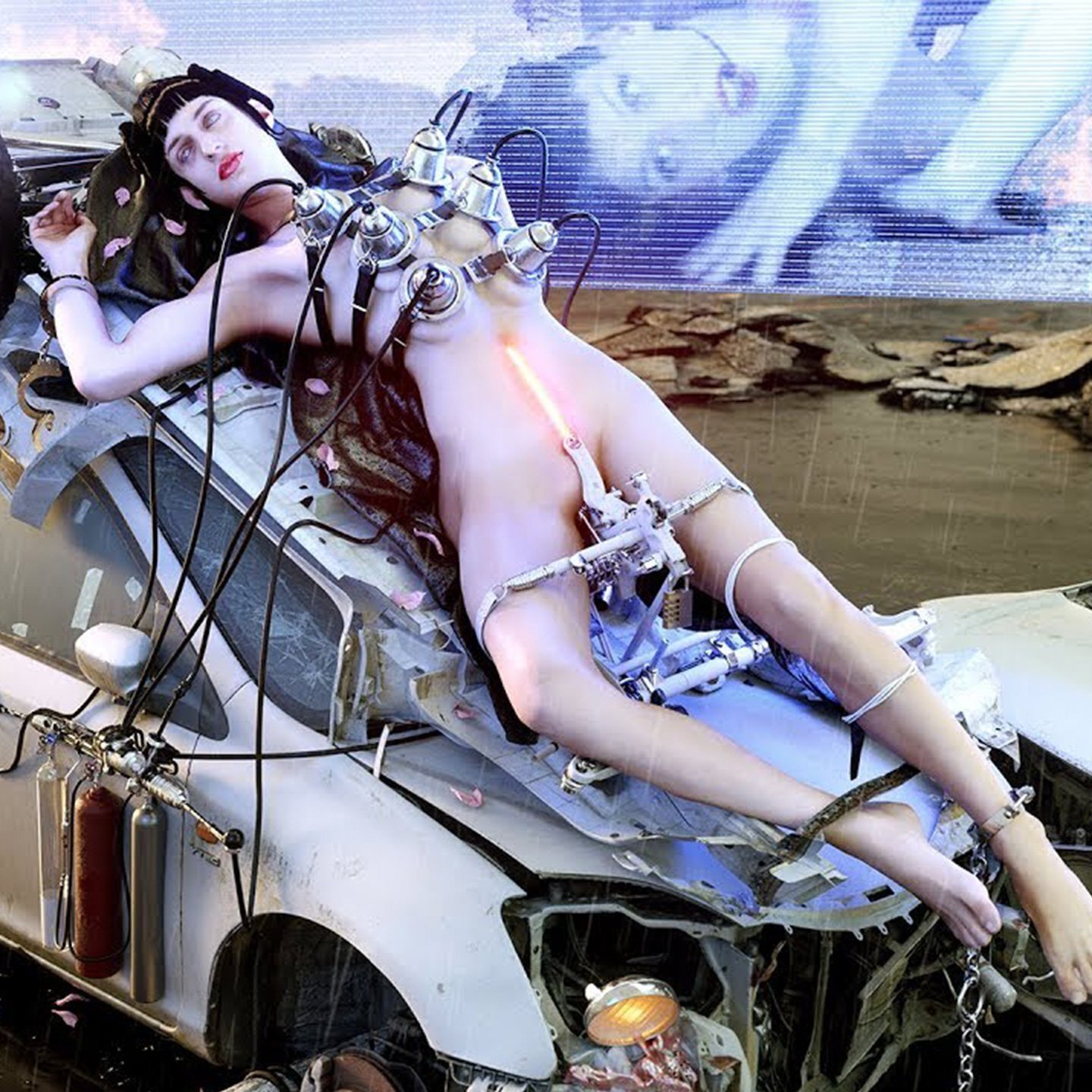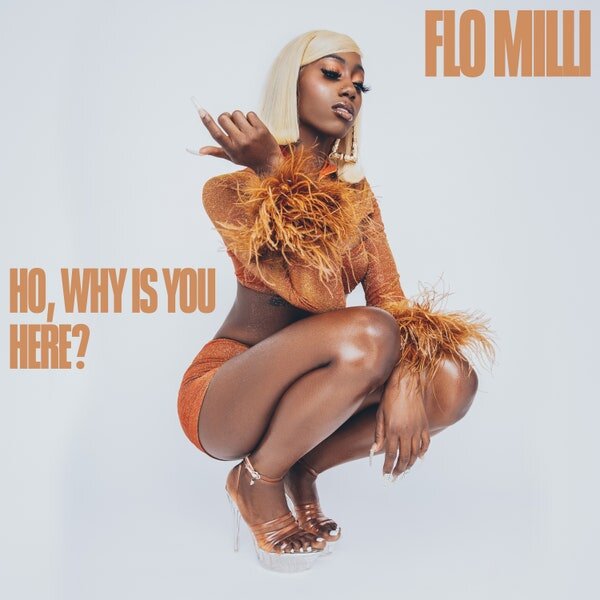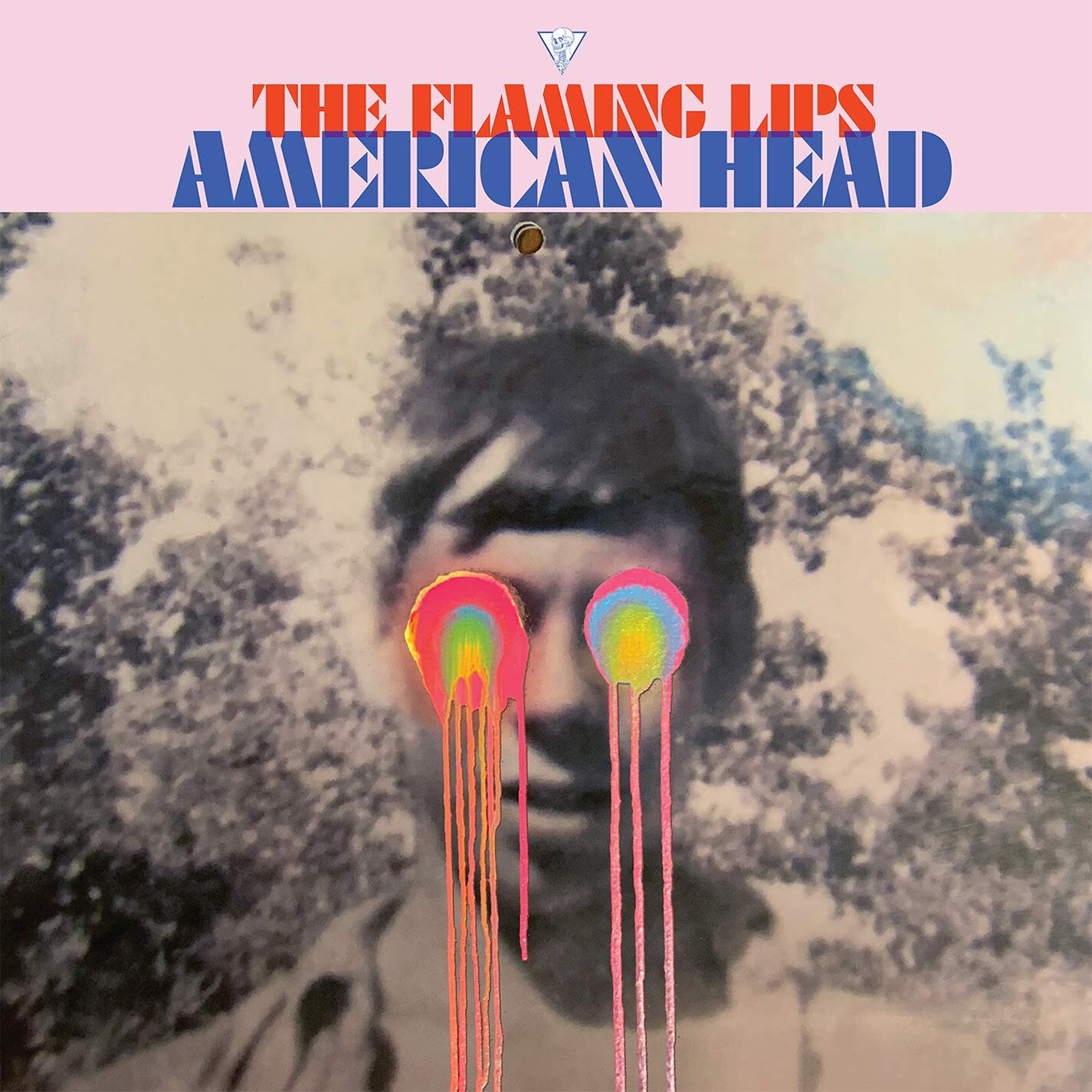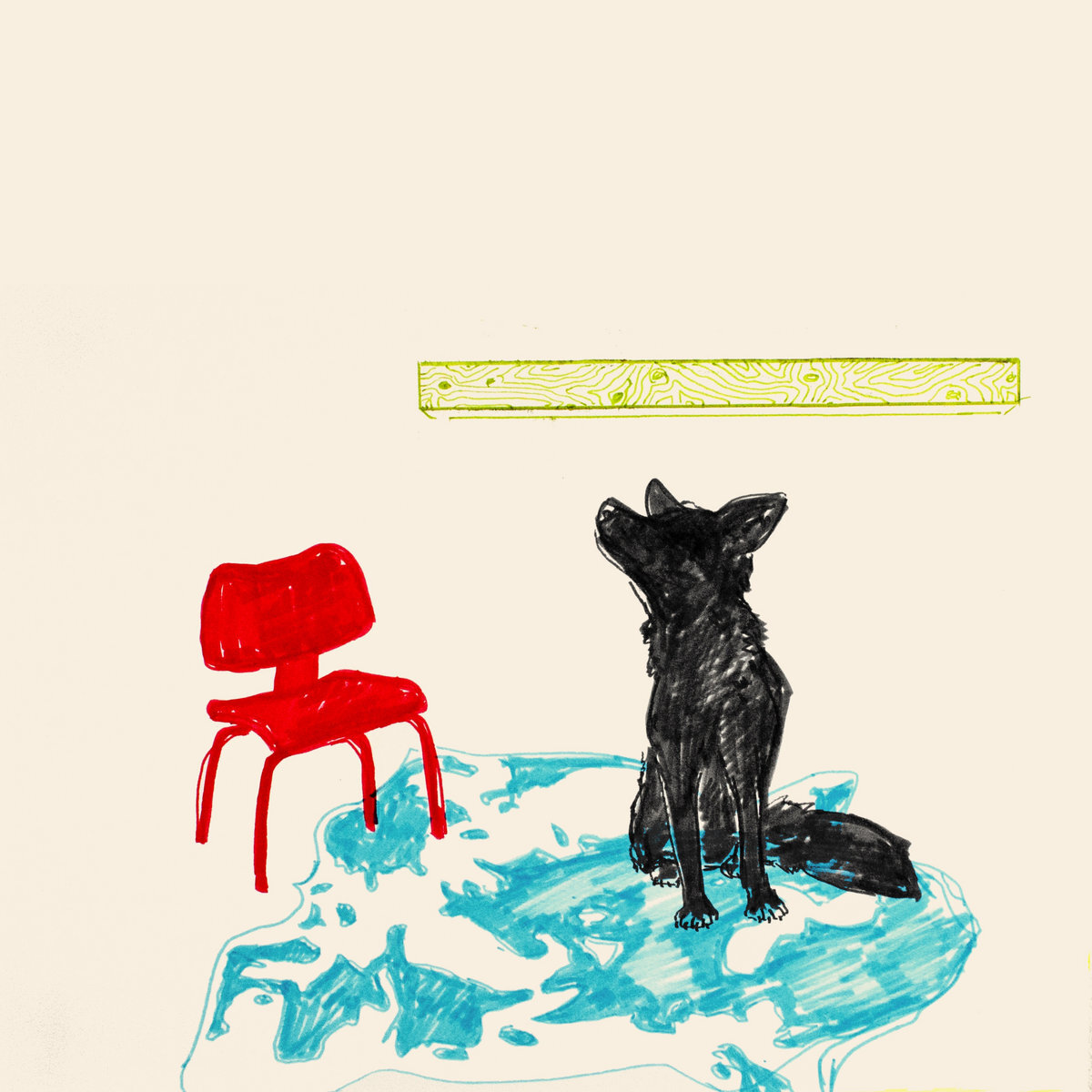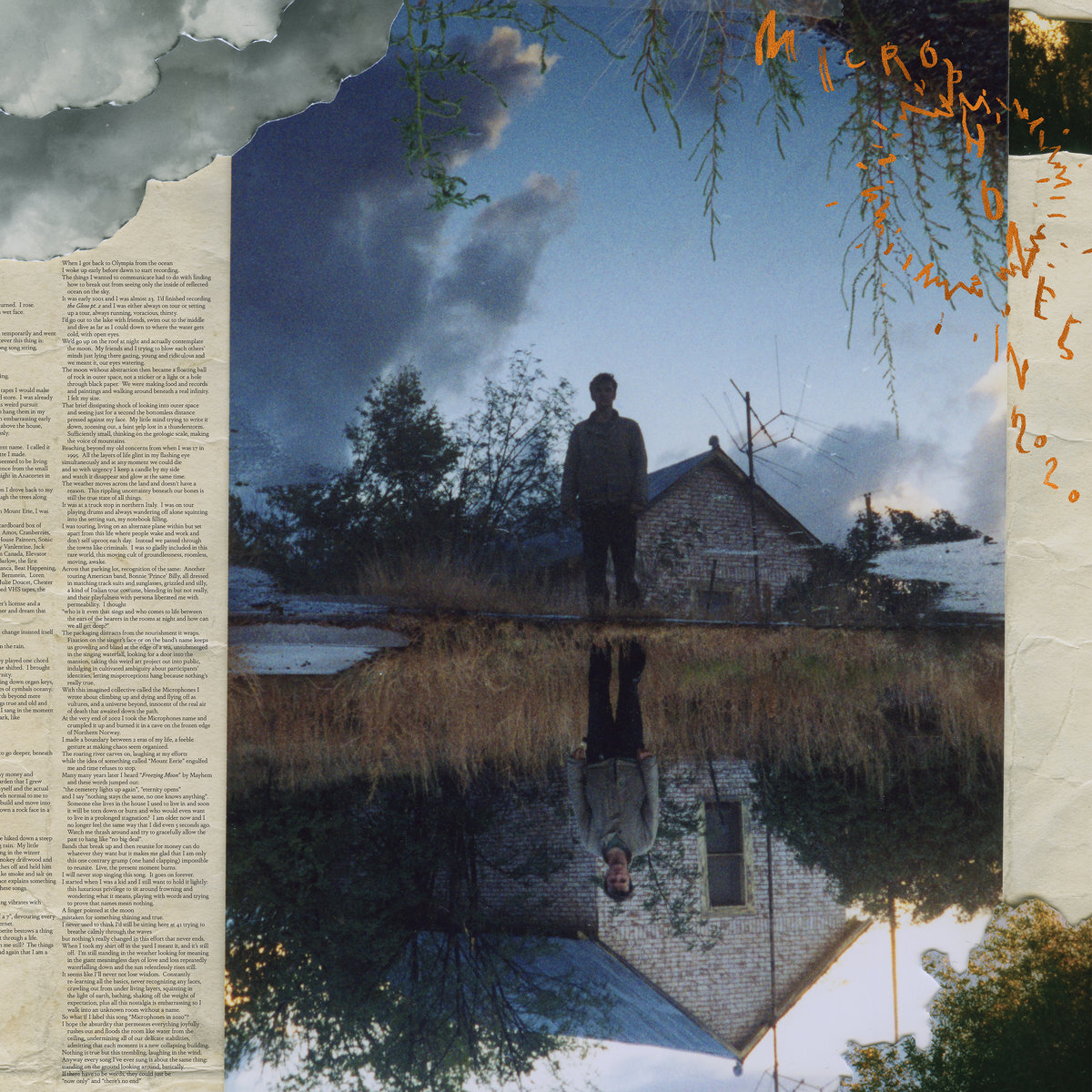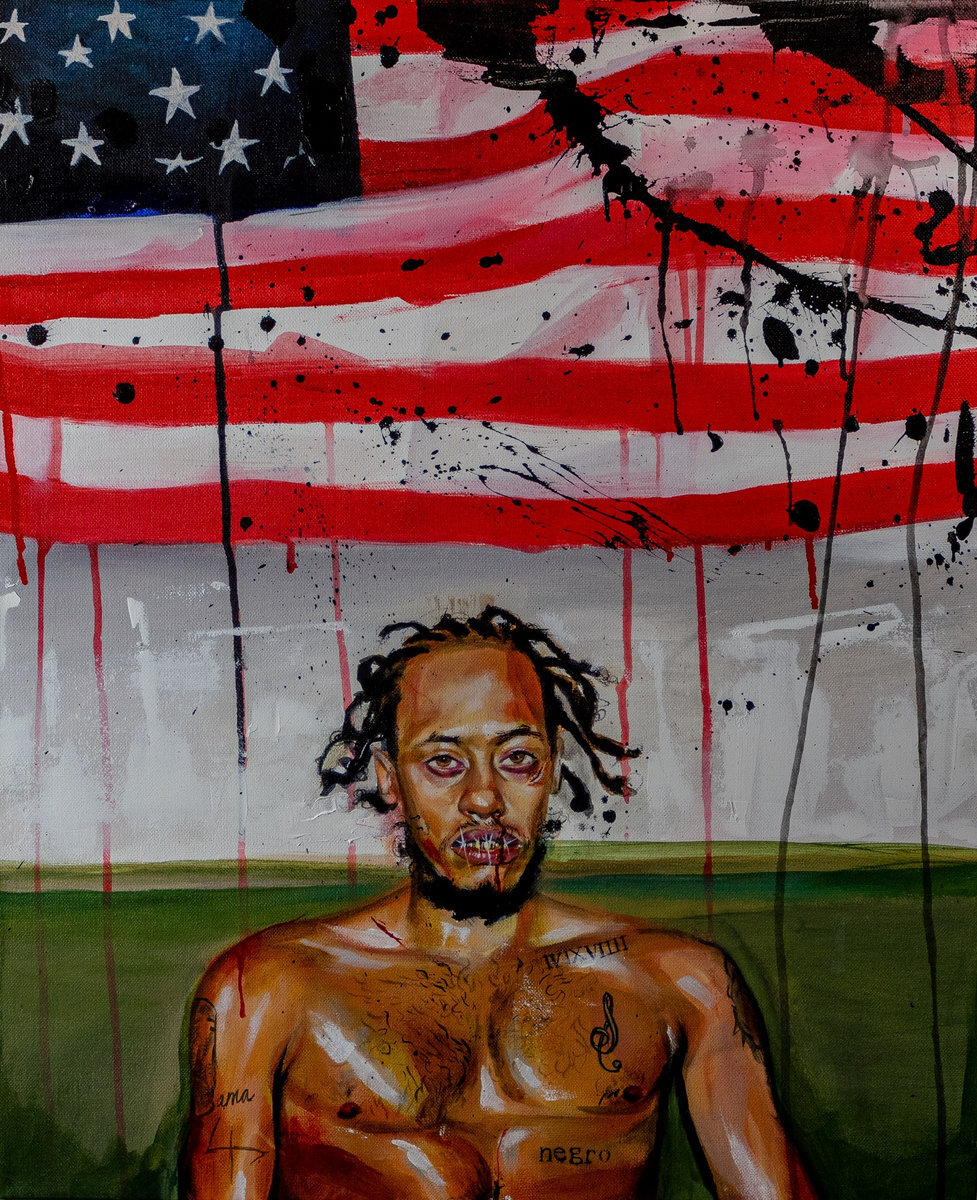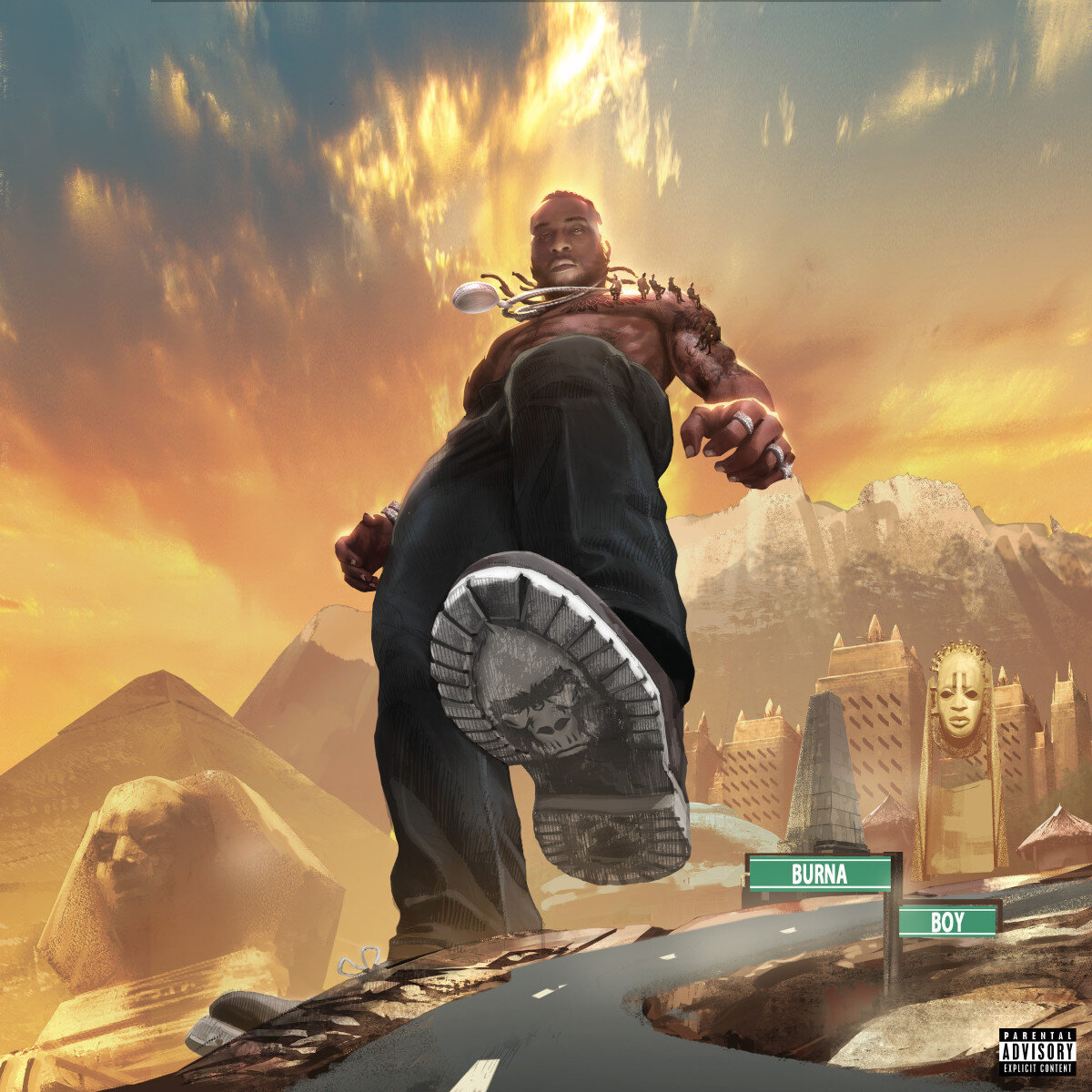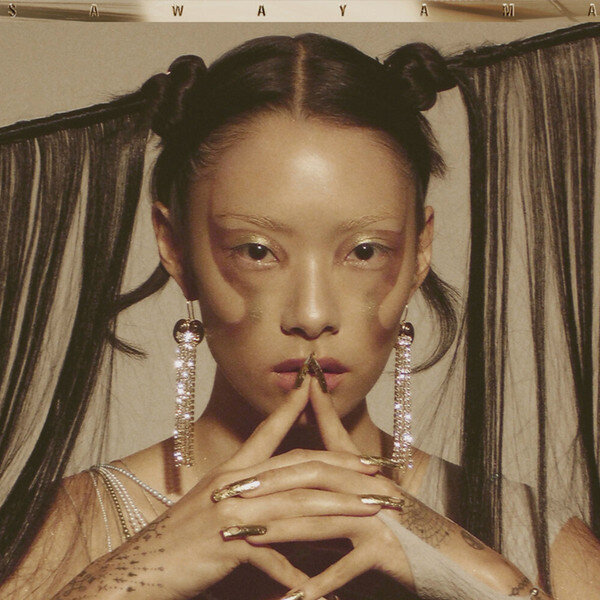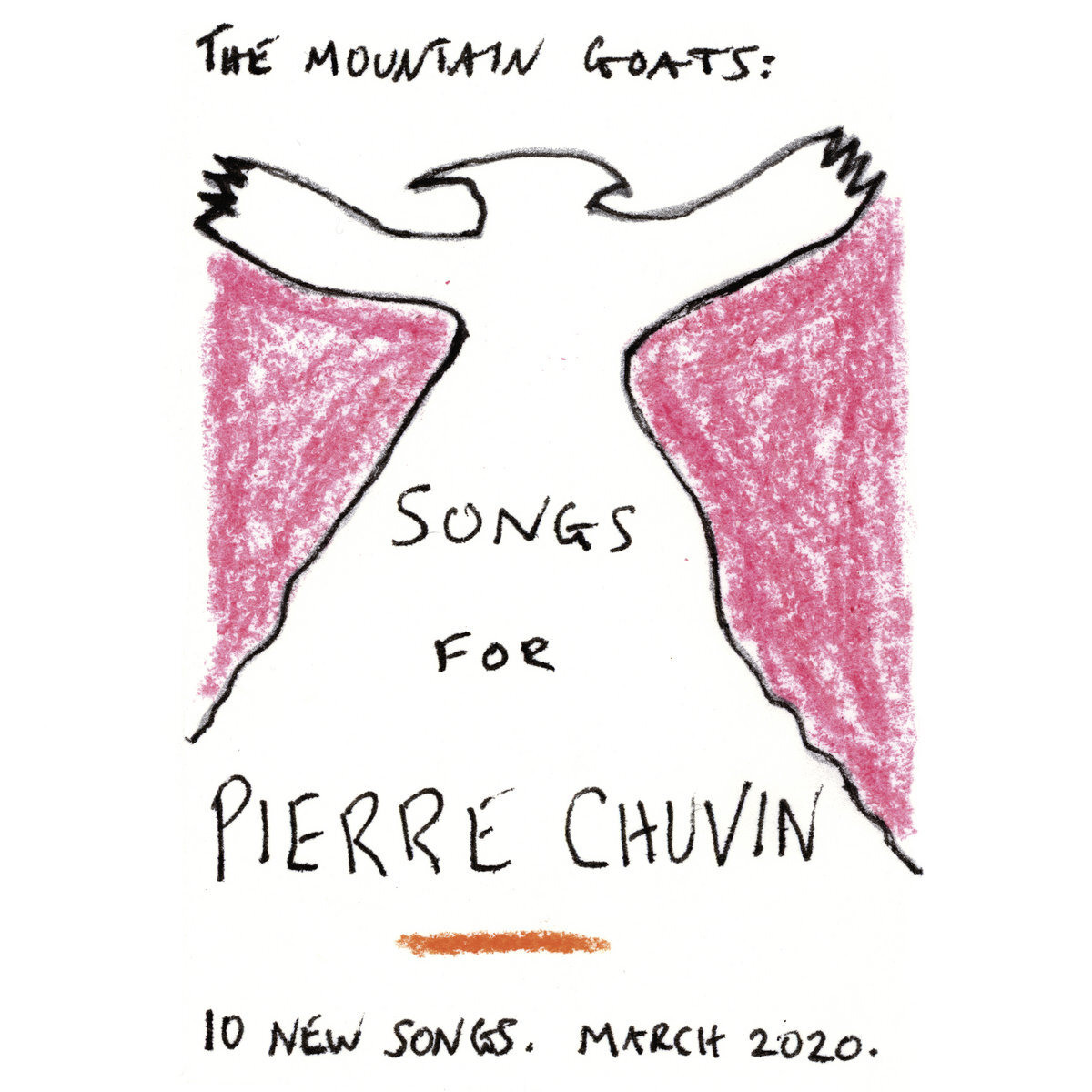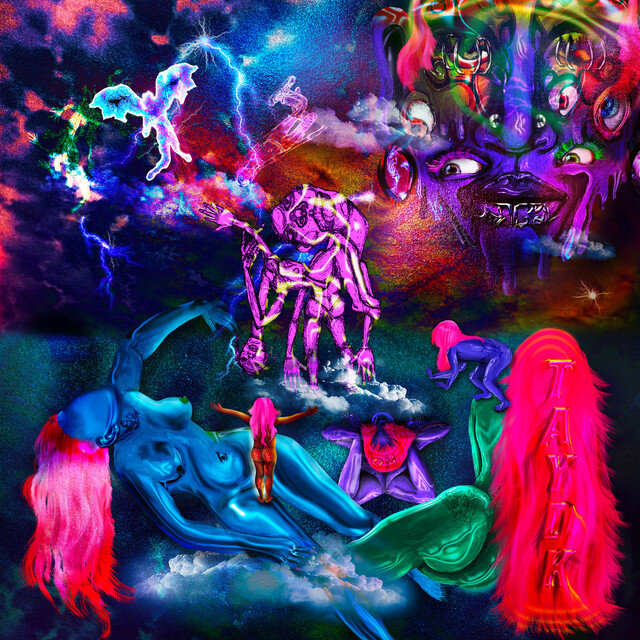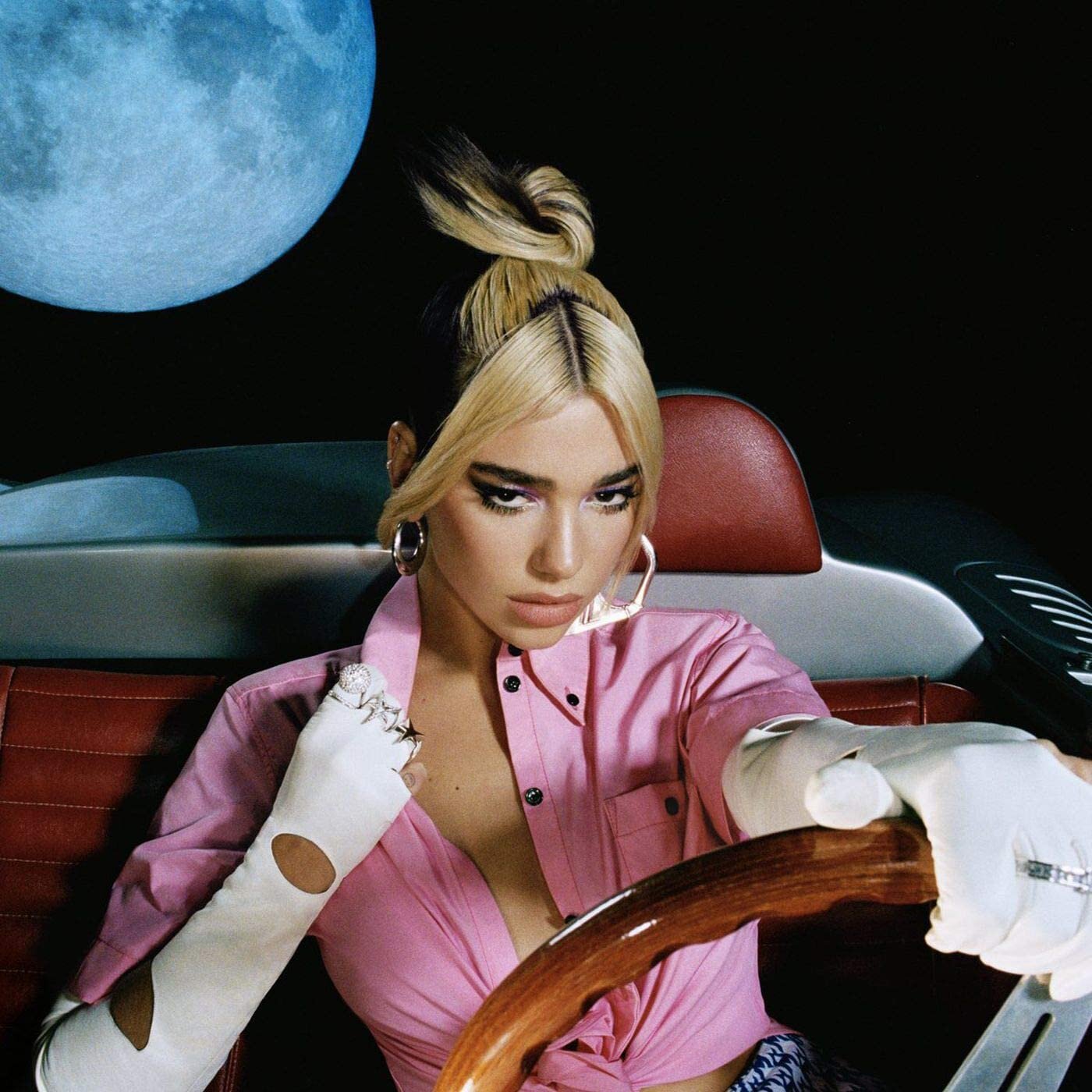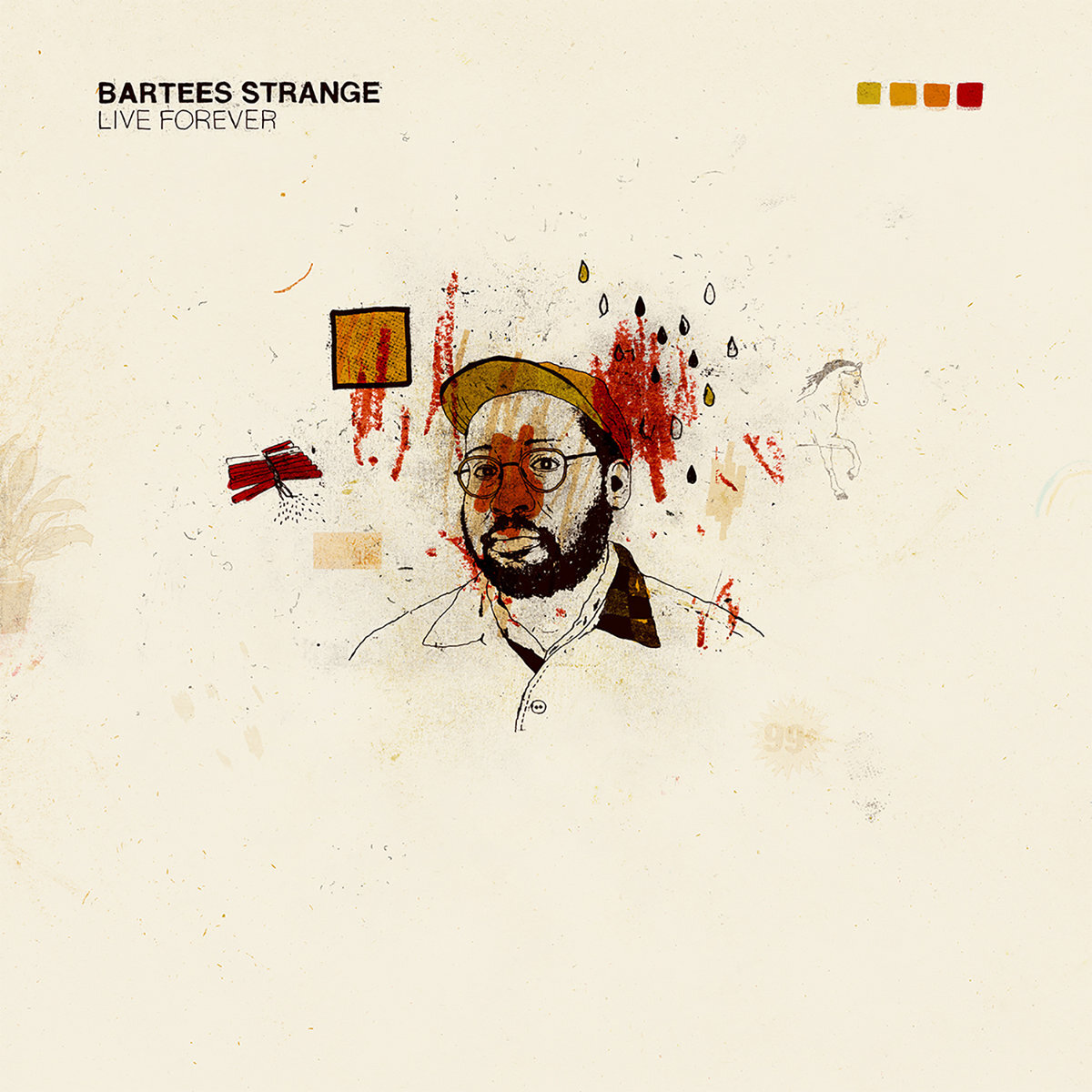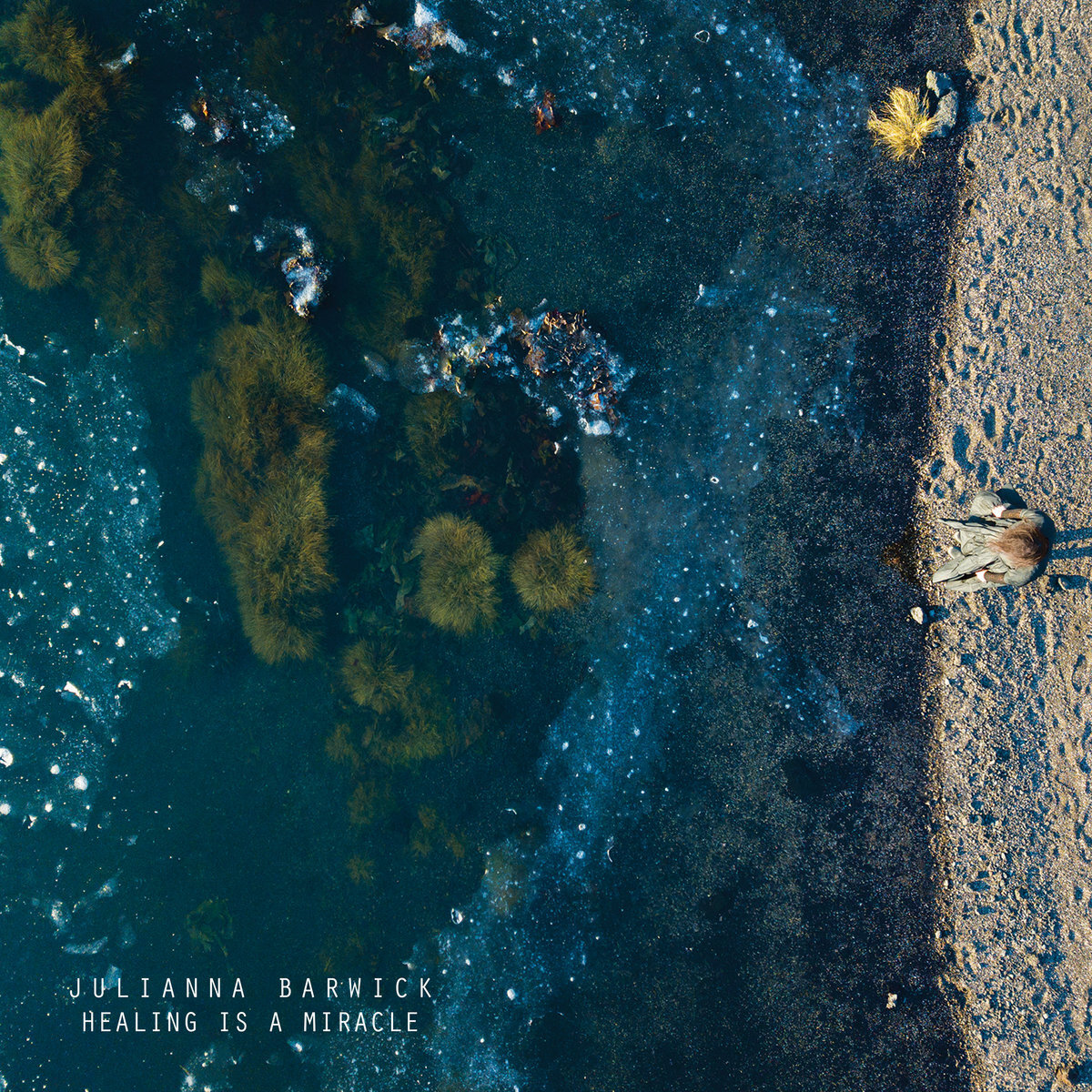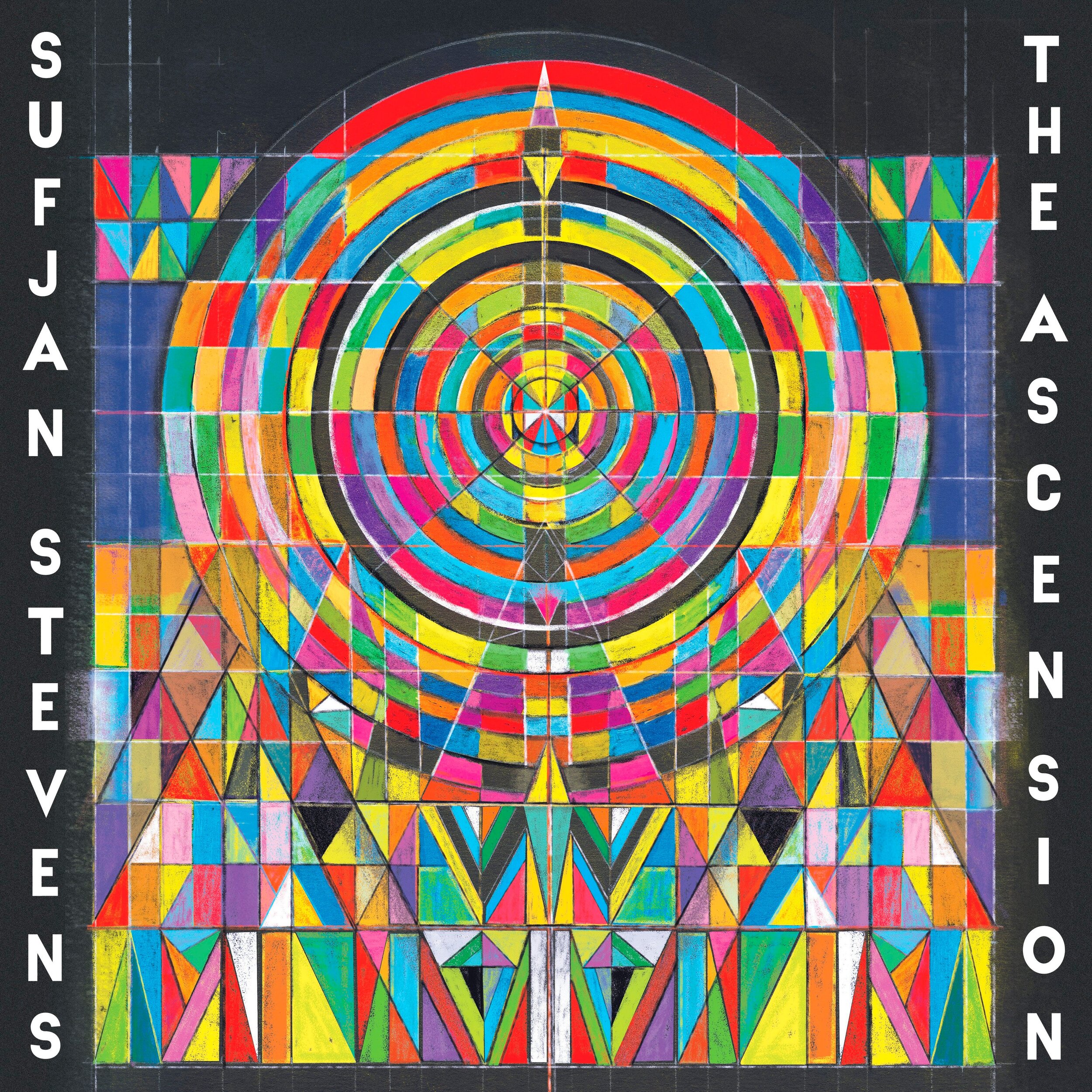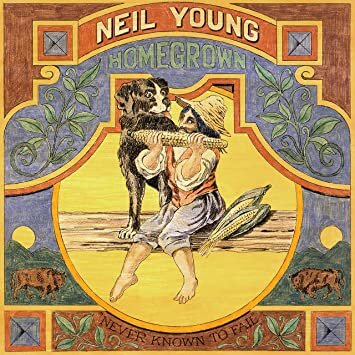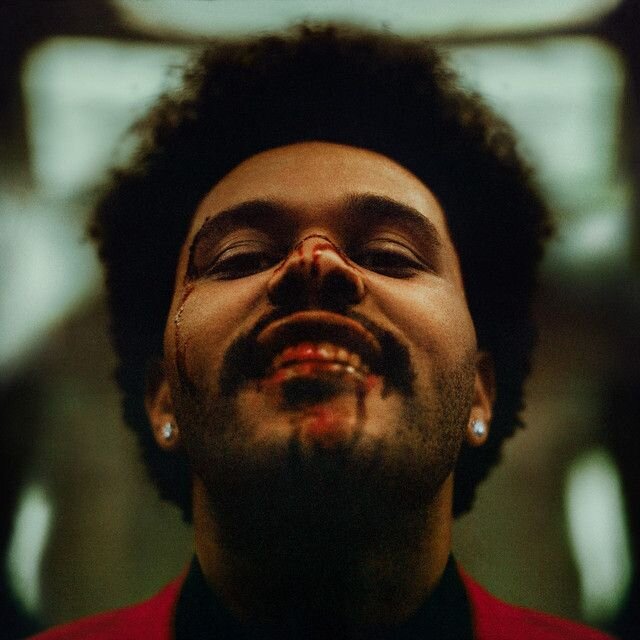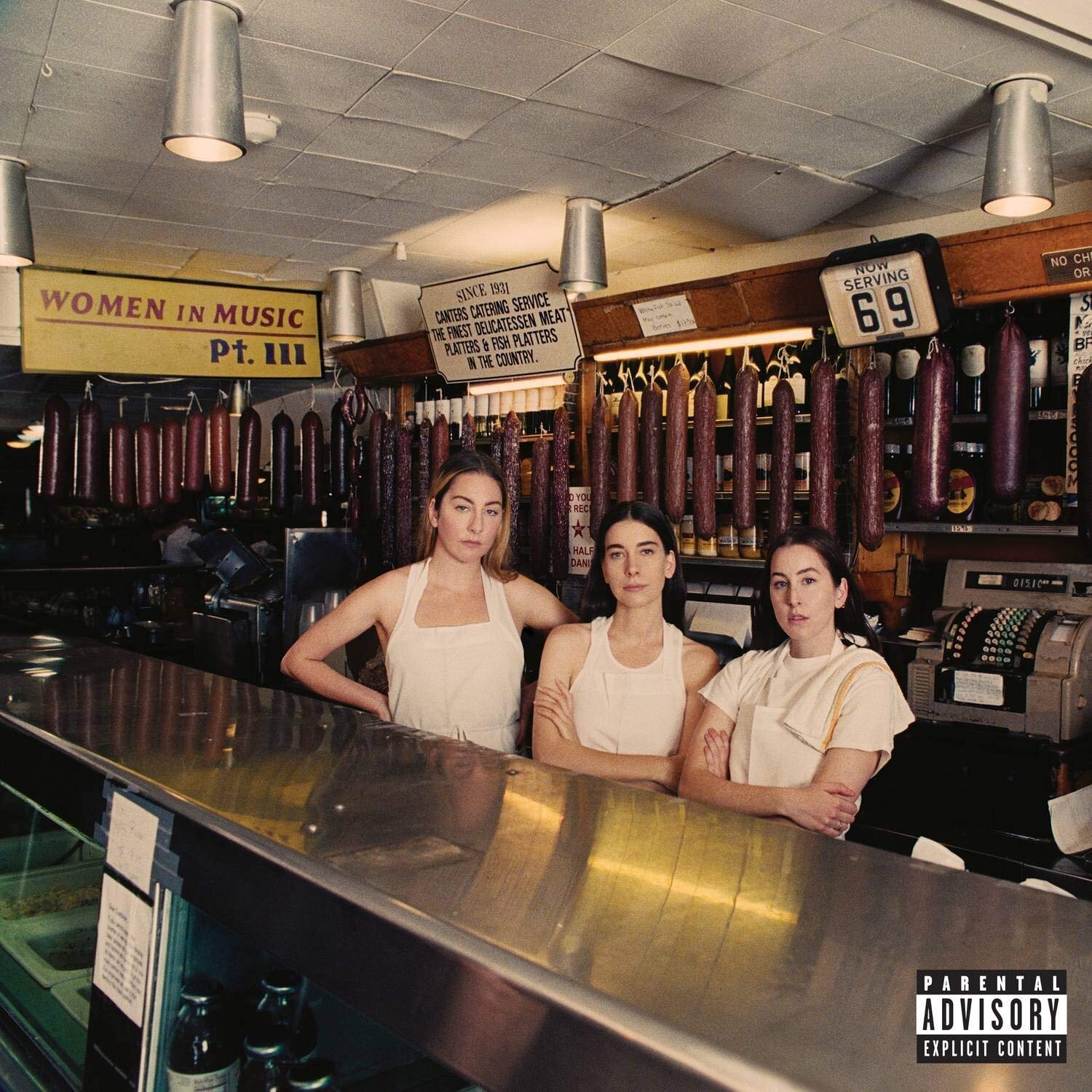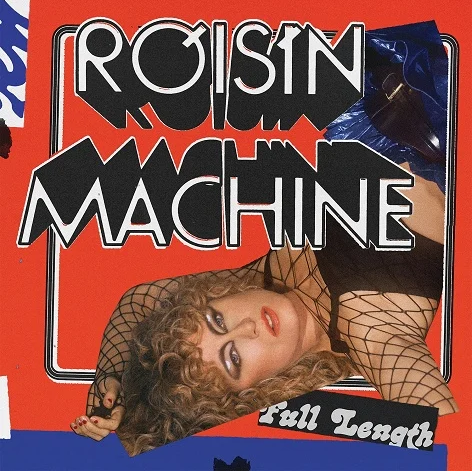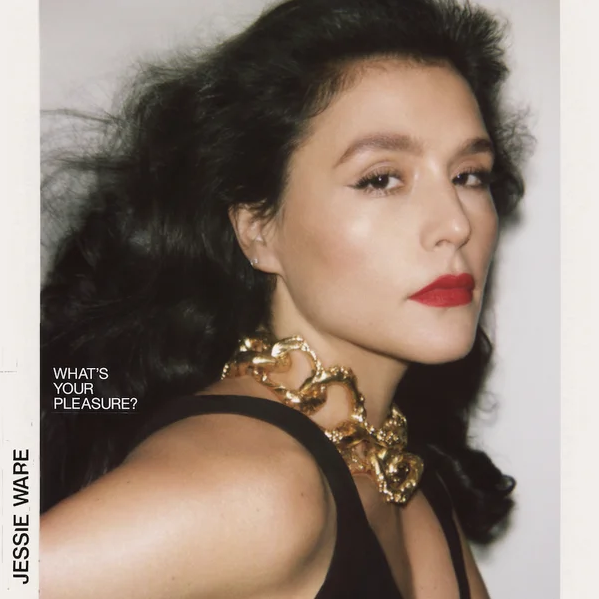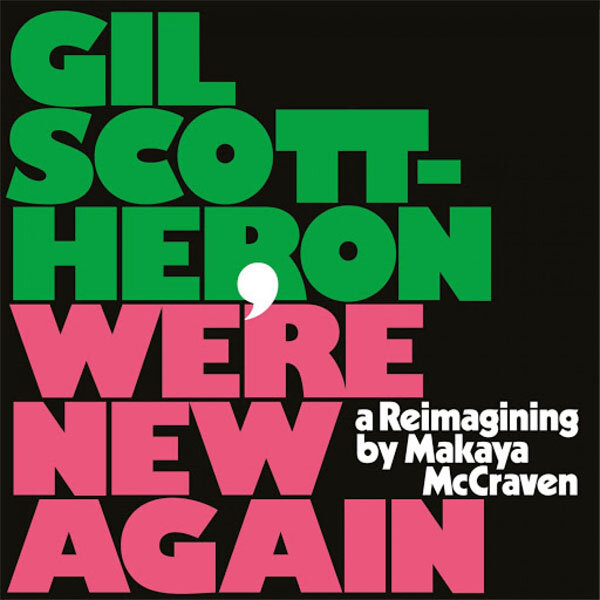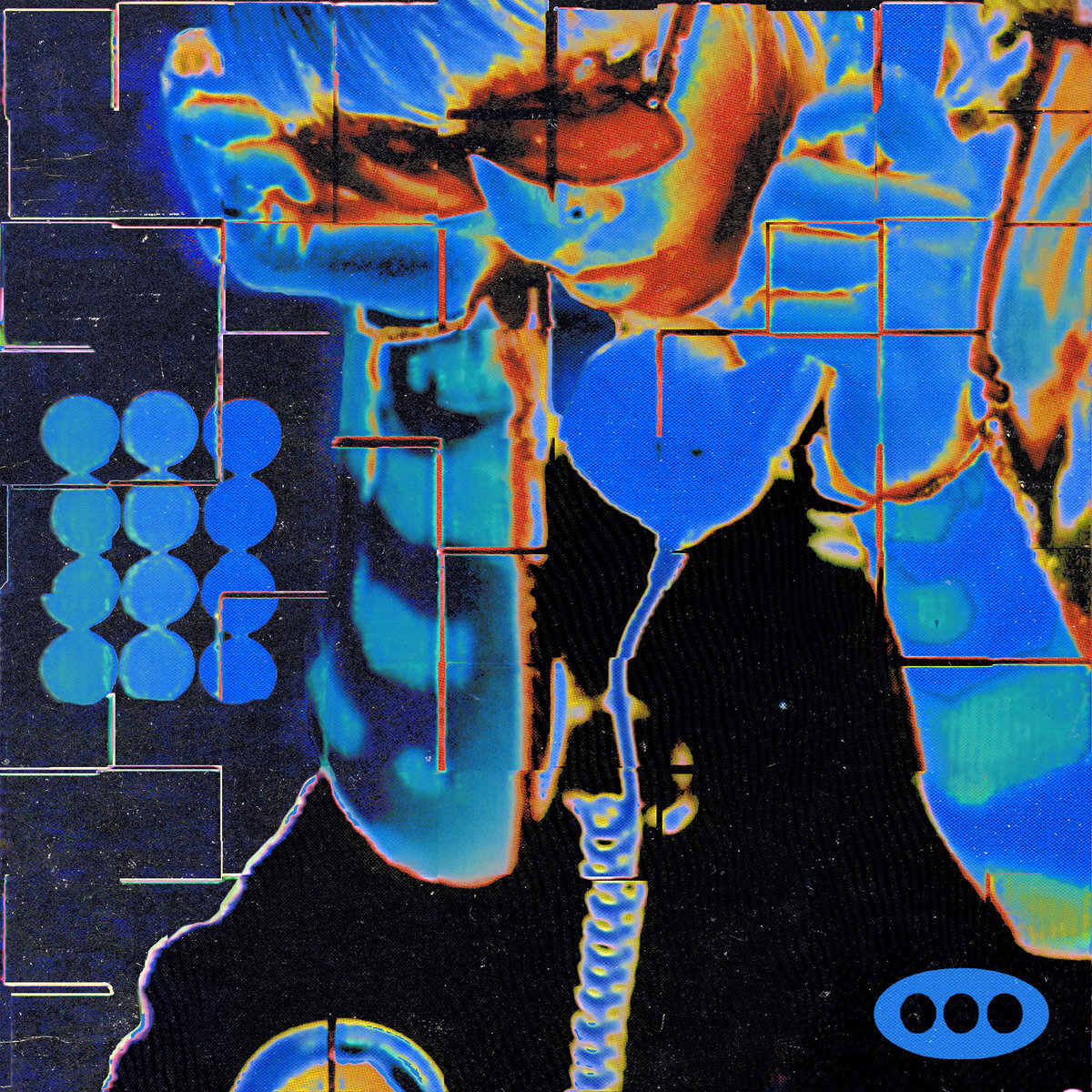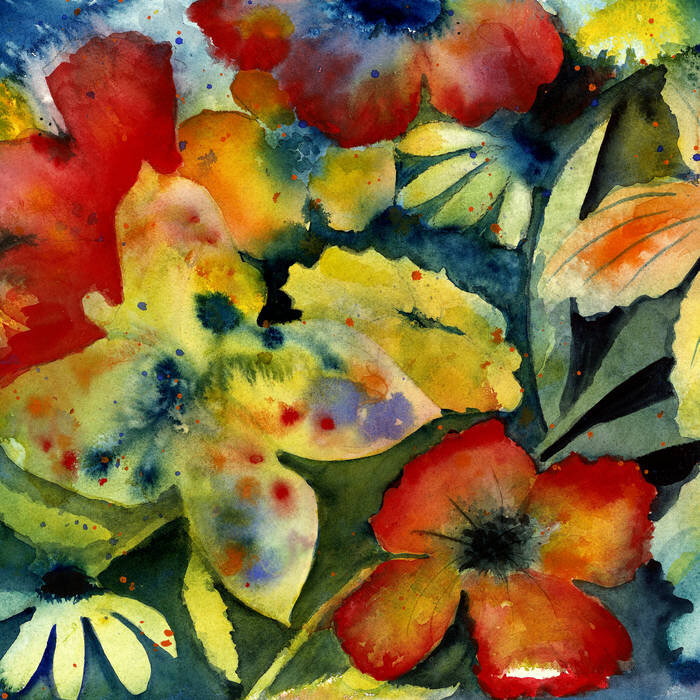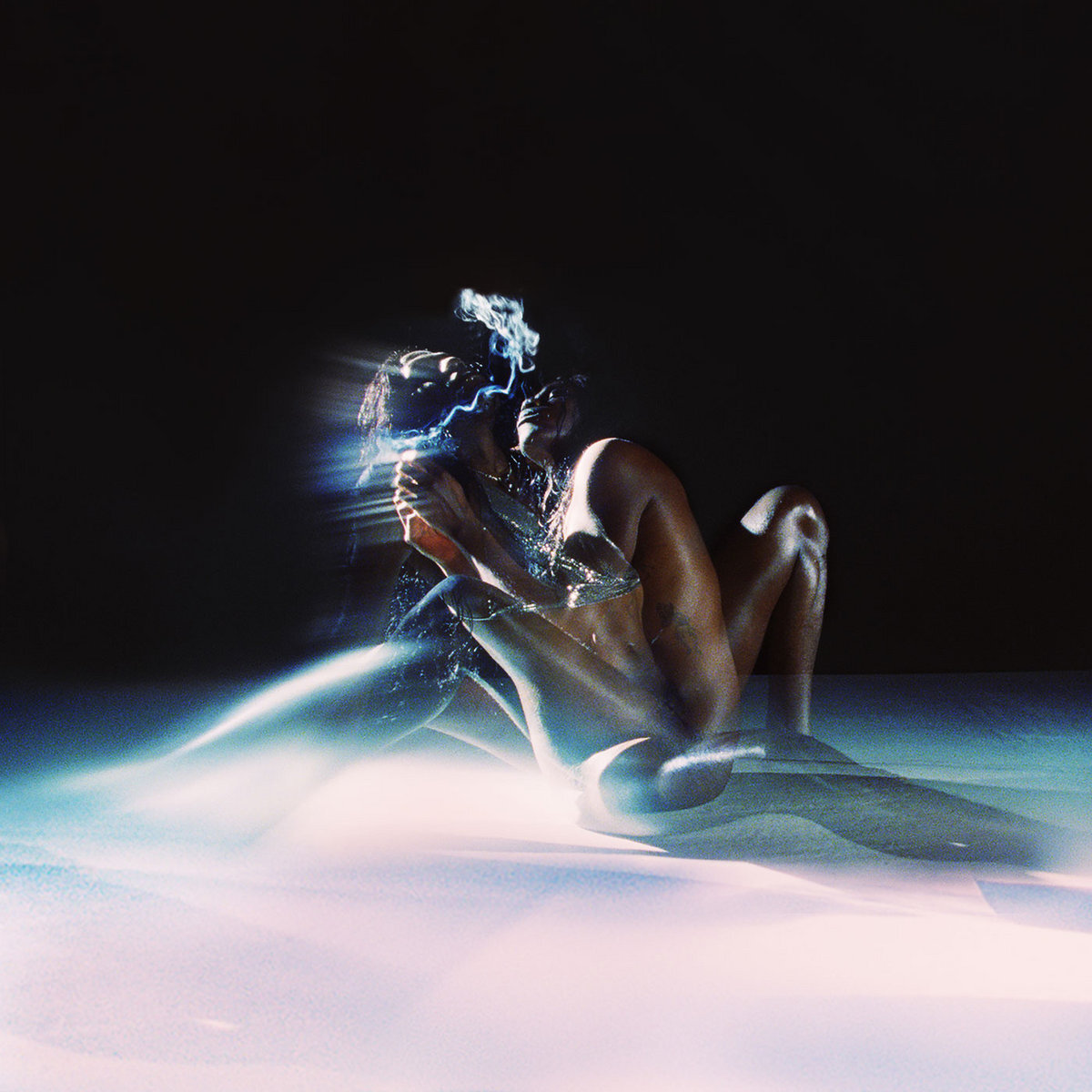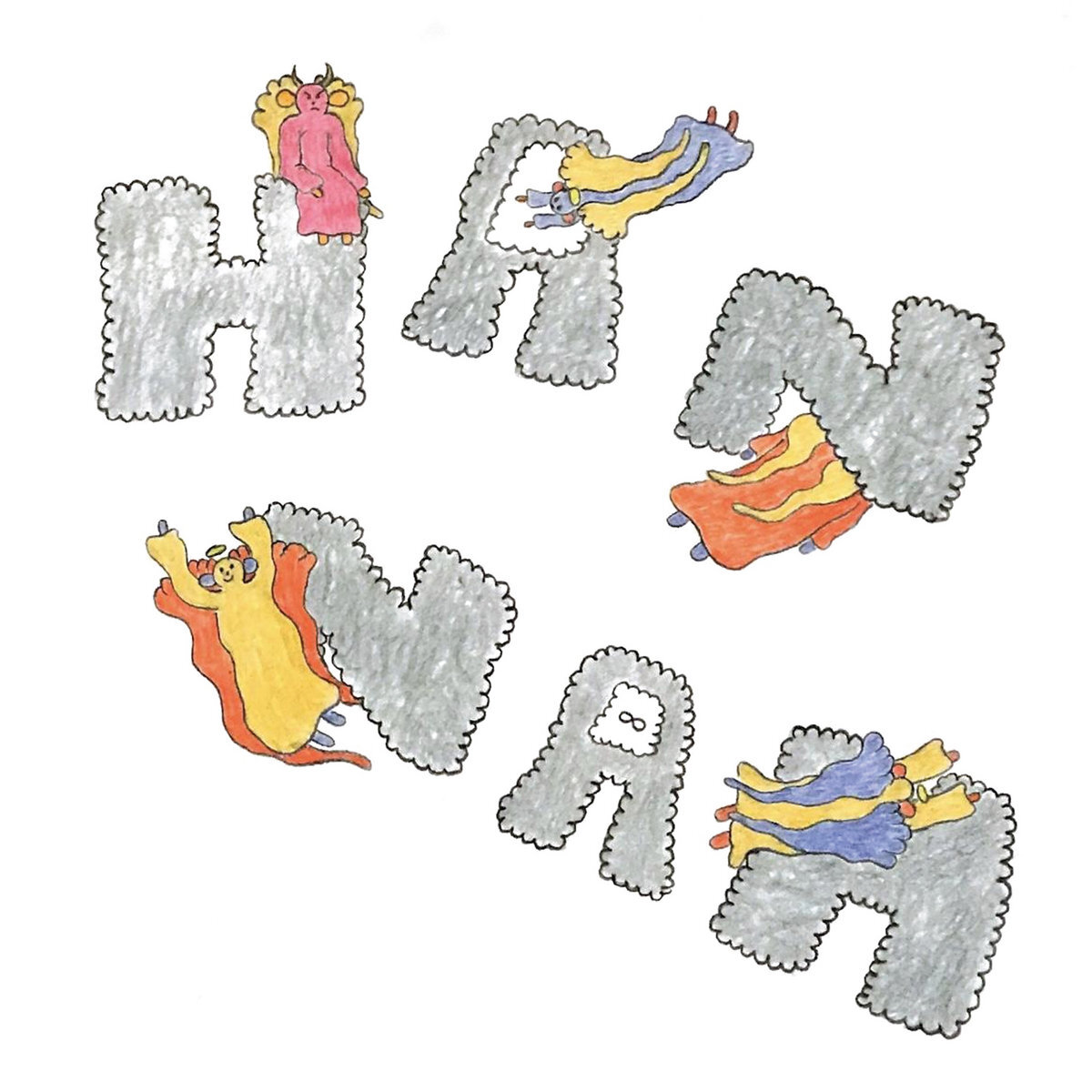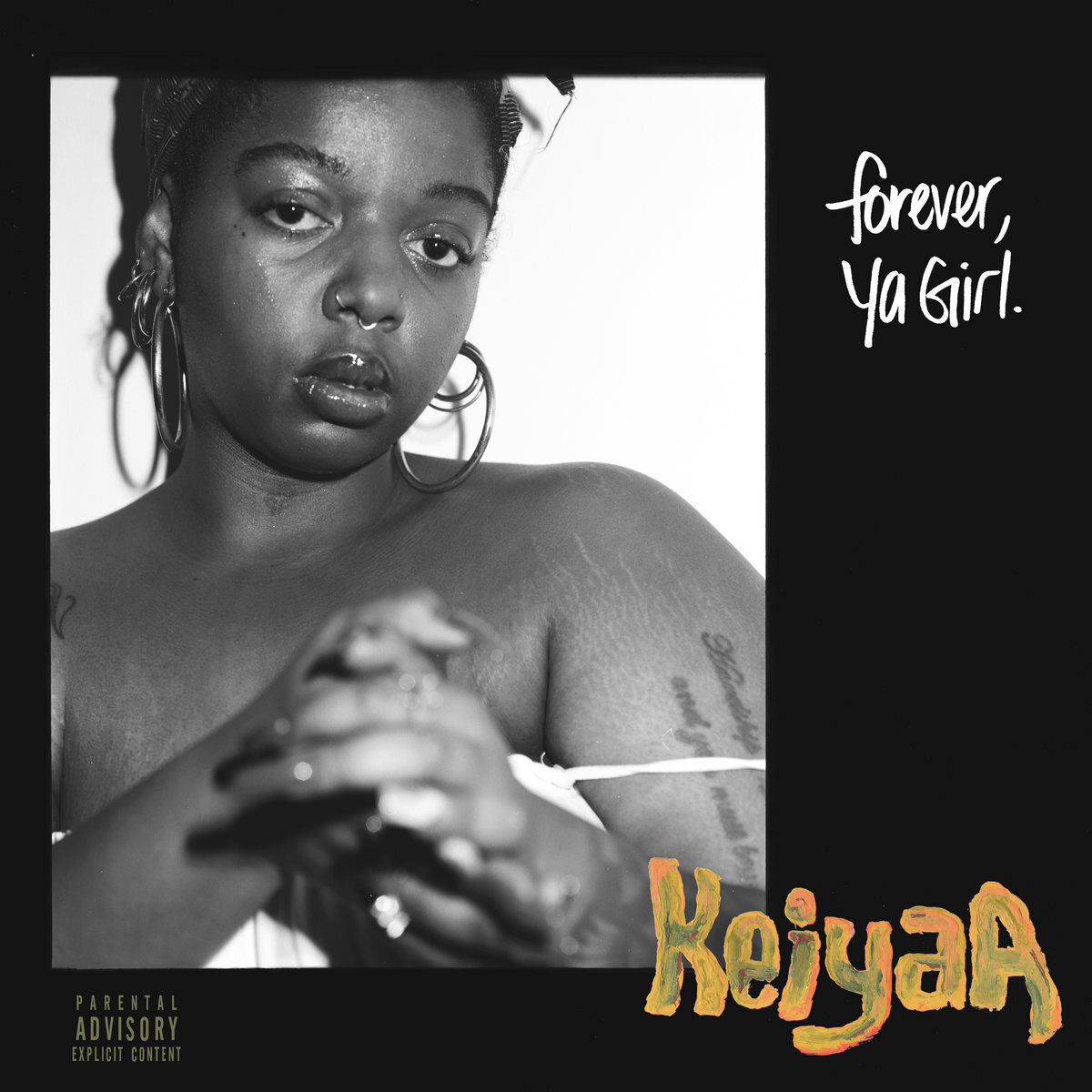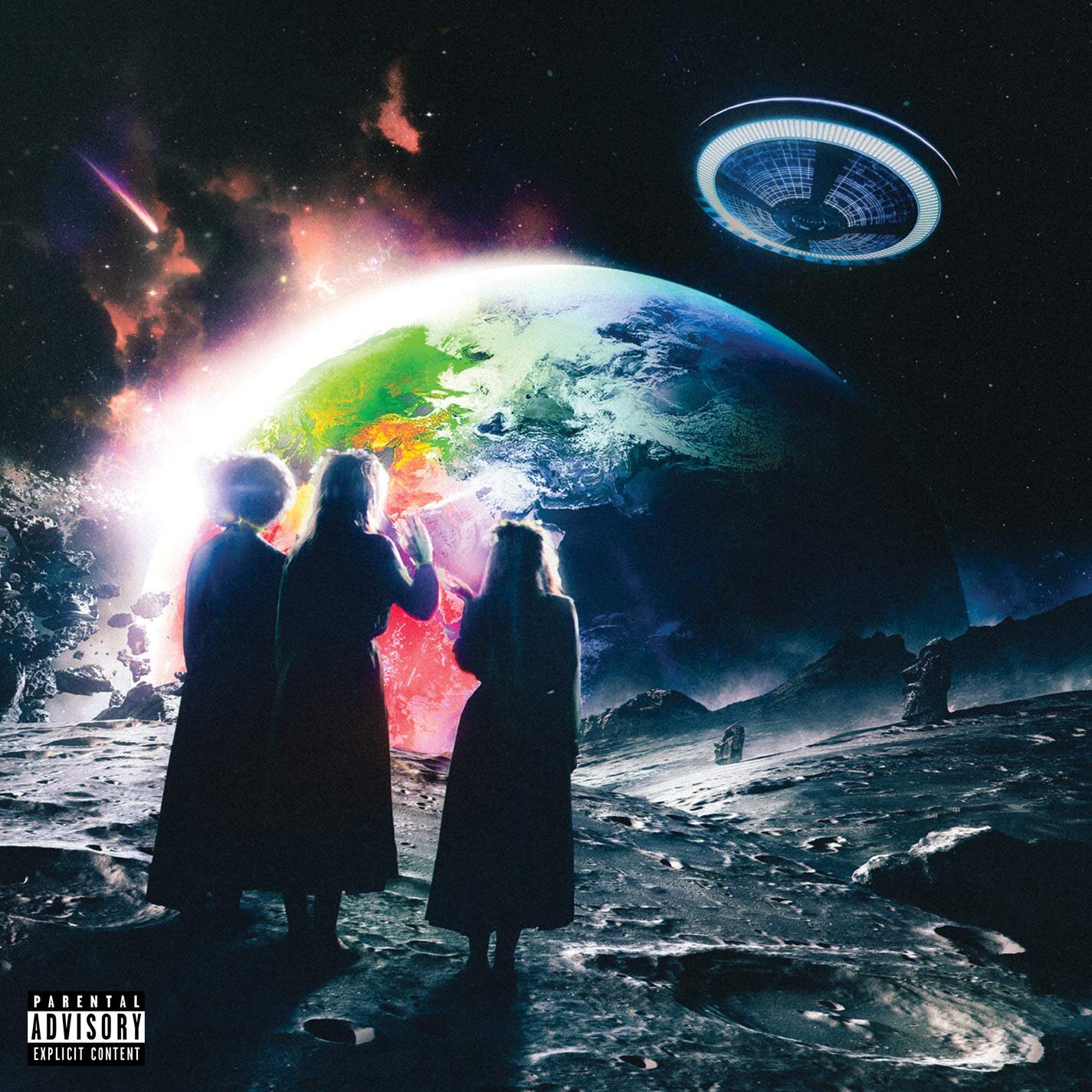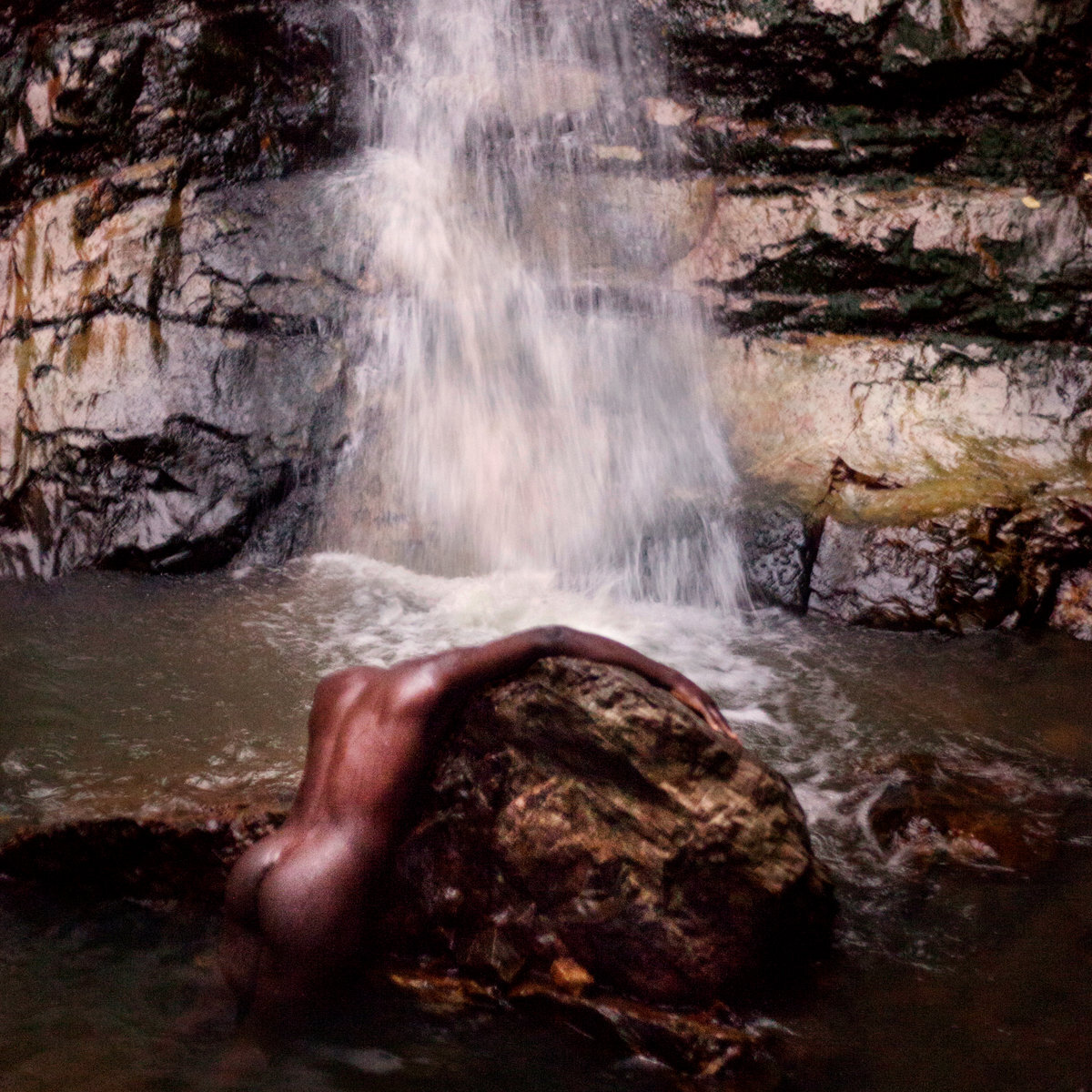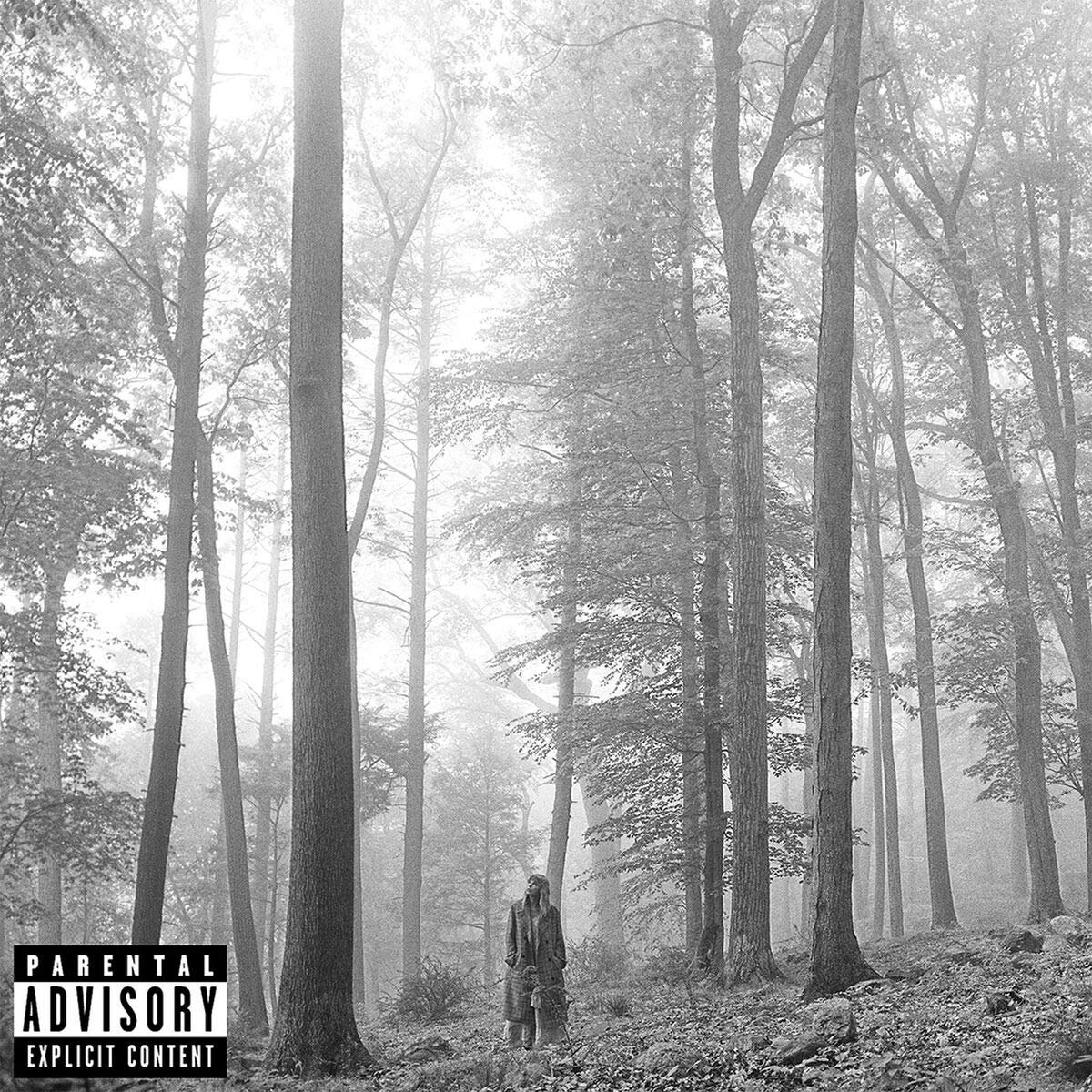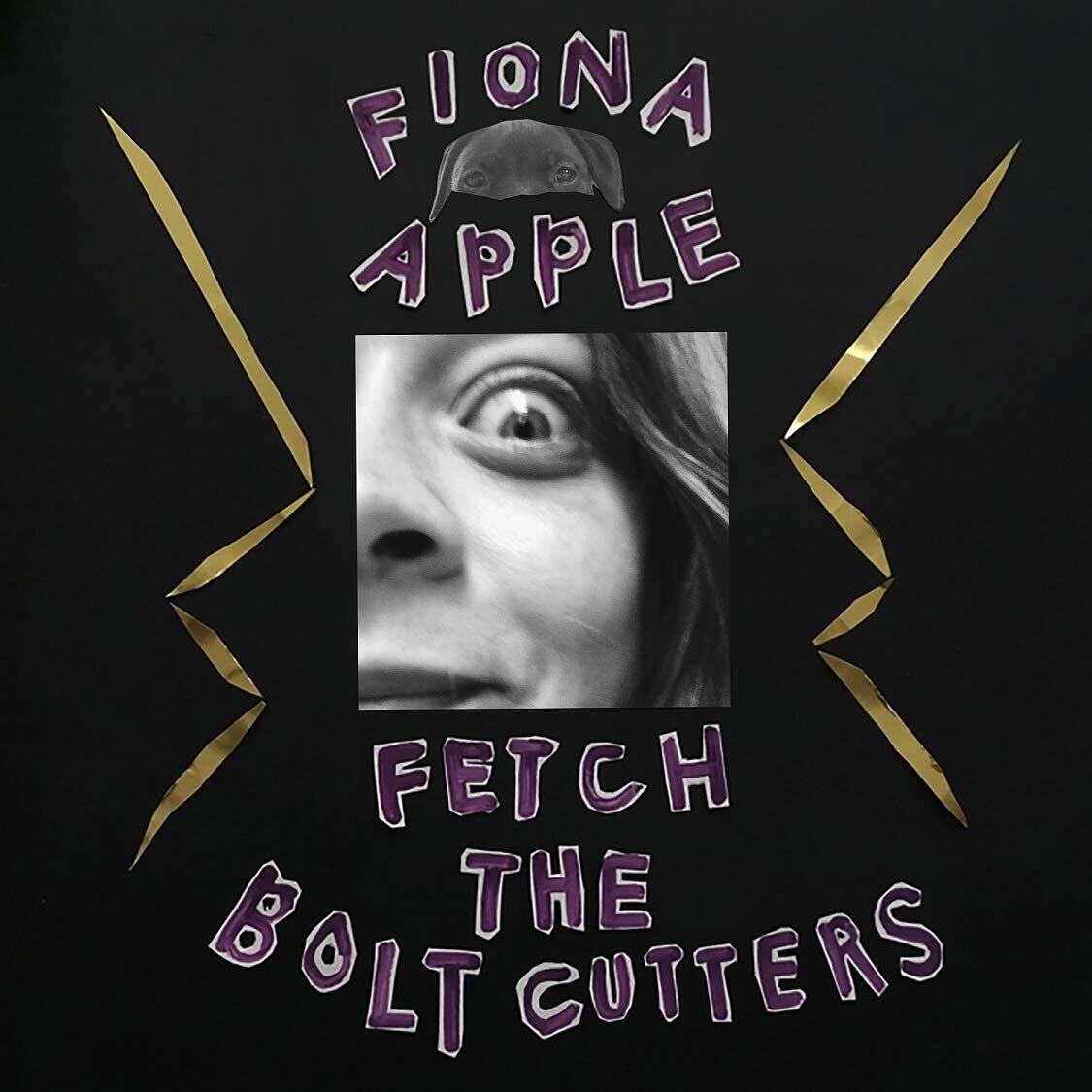Let’s get this out of the way: 2020 has been a shitty year. In the midst of a global pandemic, catastrophic climate events, increasingly tyrannical behavior from president Trump, and the rampant destruction of Black and indigenous communities, music has often provided a necessary solace. Here are the best releases from a positively terrible time.
XL • 2020
50. Arca @@@@@
Venezuelan iconoclast Arca has been smudging the edges of popular music since her corrosive sound design wormed its way through the circuits of Kanye West’s 2013 glitch marvel Yeezus. In the years since, she’s helped craft masterpieces for the likes of FKA twigs and Björk, cutting some real gems of her own along the way (2015’s Mutant and 2017’s Arca, in particular, are flooring). This year alone, the artist made stunning advances in avant-garde reggaetón on fourth album KiCk i and reissued formative 2013 loosie &&&&&. Her most enthralling 2020 success, however, hews closer to the latter than the former - the single-track @@@@@ is all blown-out drum sequencing and gurgling electronics, a formal reintroduction to her singular world of sound. This shape-shifting collection plays like a DJ set from a scorched, queer-led future, where gender is a long-forgotten relic, and “shake that pussy” is a hell-razing call-to-arms.
RCA • 2020
49. Flo Milli Ho, why is you here ?
The debut mixtape from Alabama emcee Flo Milli added a much-needed dose of fun to a remarkably bleak year. Equipped with braces and bludgeoning one-liners, the twenty-year-old falls somewhere between Kreayshawn and Rico Nasty in the lexicon of ladies in hip hop, landing each punchline with a youthful, giddy precision. In the video for breakthrough single “In the Party,” Flo is the cheerleading, ass-shaking star of her high school, snatching boys and taking names. Even without the aid of visuals, Ho, why is you here ? sells the image, a bouncy set of trap-wise bops that makes her an artist to watch.
Warner • 2020
48. The Flaming Lips American Head
On their best album since 2009’s Embryonic, the Flaming Lips explore the dark side of psychedelic drug culture. American Head is a eulogy for lost youth, a depressive come-down that reckons with death and mortality. It never comes across as preachy or scolding - Wayne Coyne delivers the cautionary tales here with a sad sweetness, enlightened by age and experience. When he arrives at the mind-warped chorus of “Mother I’ve Taken LSD,” it feels like a true epiphany: “now I see the sadness in the world.” The album’s gutting peak, however, arrives too late - “Mother Please Don’t Be Sad” is a heart-rending message from the afterlife, delivered from son to mother with spiritual clarity. The song cycle that follows heaves with grief and perspective, and on closer “My Religion Is You,” American Head comes full-circle. Sixteen albums into their career, the Lips hint at the well-worn wisdom of 2002’s “Do You Realize??,” urging us to cherish life’s complexities while we can.
Night School, Thrilling Living • 2020
47. Dogleg Melee
Detroit hardcore band Dogleg absolutely rip through their debut album, Melee. Having honed their edges in basement shows with contemporaries La Dispute and Pity Sex, the quartet makes thrashing indie rock that feels familiar and all-consuming. In addition to Midwest emo legends like Cap’n Jazz and Sunny Day Real Estate (the latter of whom come through clearly on highlight “Prom Hell”), the band has mentioned The Strokes, Interpol, and Arctic Monkeys as points of reference, seemingly unusual influences that make more sense in the scope of their pop-leaning immediacy. Breakthrough single “Fox” fully encapsulates their appeal, an absolute steamroller of a song that never once sags under the weight of its emotional impact. Melee sounds built for tightly packed, sweat-drenched venues, the likes of which seem like fading memories at this point in time. Even as we’re relegated to the privacy of our headphones, Dogleg take us there.
P. W. Elverum & Sun, Ltd. • 2020
46. The Microphones Microphones in 2020
You could call Phil Elverum a lot of things - over the course of his illustrious career, he’s explored glittering mysticism, subconscious unraveling, and unadorned tragedy. You could never accuse him, however, of being indirect. On his first release as the Microphones in nearly two decades, he combs back through a lifetime of meditative scaffolding, recounting his formative years with bold austerity. “The true state of things,” he begins, “I keep on not dying / the sun keeps on rising.” The plainspoken self-cataloguing of the single-track Microphones in 2020 recalls Sun Kil Moon’s 2014 opus Benji (as unfortunate a comparison that might be this year), rewatching grief, elation, and everything in-between with mindful reverence. Over the course of the song’s 44 minutes, Elverum recovers several breathtaking photo stills, a description made very literal in its long-form music video. But for all of his revelations in miniature, he ends up back where he started - “every song I’ve ever sung is about the same thing: standing on the ground, looking around.” In the seventeen years since the last Microphones album, Elverum has offered evocative, haunting works as Mount Eerie, navigating most recently through the trauma of death, loss, and divorce. If Microphones in 2020 is any indication, his eternal quest for meaning remains unchanged.
self-released • 2020
45. Pink Siifu NEGRO
The wrongful deaths of Breonna Taylor, George Floyd, and hundreds of other Black Americans cast a long shadow over 2020. Nationwide protests, led primarily by the Black Lives Matter movement, inspired incensed conversation on police brutality, reform, and abolition. Music played an essential role in this discourse, and on one of the year’s more criminally overlooked releases, Birmingham rapper Pink Siifu channels centuries worth of rage and repression into a moment-defining tour de force. NEGRO pays homage to a storied tradition of Black hardcore, evoking sounds from D.C. legends Bad Brains all the way to noise rap overlords Death Grips. Only on occasion does Siifu indulge in the jazz-lit glow of 2018’s ensley, and these moments float by like smoky daydreams. Elsewhere, it’s unrelentingly and horrifyingly realistic - highlights “SMD” and “FK” are throat-shredding laments, tragic and relevant tales of a grim American ethic.
Spaceship Entertainment, Atlantic, Warner Music • 2020
44. Burna Boy Twice As Tall
In a landmark year for Afrobeats - West Africa’s diaspora-spanning concoction of dancehall, R&B, and local styles such as highlife and jùjú - Burna Boy’s fifth album rose to the top of the heap. The Nigerian musician bests his 2019 stunner African Giant with flying colors, emerging with an engrossing, no-frills pop album, the sonic depth of which knows no bounds. Every mode of Burna’s multifaceted talent is present on Twice As Tall: “Level Up” is cavernous, Timbaland-assisted trap; “Monsters You Made” is a chart-ready Chris Martin collab; and “Wonderful” is a soaring, joyous flare of reggaetón, R&B, and South African Kwaito that makes the rest of modern pop feel colorless in comparison. He brings out the best in his collaborators too, making Martin bearable, Stormzy softer and more melodic, and hip hop stalwarts Naughty by Nature sound more energized than they have in decades. Burna Boy has been steadily redrawing the borders of contemporary music for several years now, and on Twice As Tall, he’s broken the ceiling several times over.
Dirty Hit • 2020
43. Rina Sawayama SAWAYAMA
British singer Rina Sawayama has a sponge-like sense of musicianship, absorbing her many stylistic influences (Britney, Christina, Gaga) into a unique whole. On her debut, SAWAYAMA, she settles into a kaleidoscopic realm where early oughts nostalgia, pulsing house, thrashing nu-metal, and modern pop conventions bridge seamlessly into something timeless. Rina is a versatile singer and a gifted songwriter, recounting in visceral detail the growing pains of overcoming family trauma. On standout “Chosen Family,” SAWAYAMA becomes a personal transformation, the artist reclaiming her name from the claws of self-doubt and oppressive traditionalism.
(Read my original review here.)
Merge • 2020
42. The Mountain Goats Songs for Pierre Chuvin
Recorded on the same Panasonic RX-FT500 boombox as his breakthrough, 2000’s All Hail West Texas, John Darnielle’s eighteenth studio album is a welcome return to the gritty, everyman charm of the Mountain Goats’ early achievements. Songs for Pierre Chuvin was inspired by the titular French historian’s A Chronicle of the Last Pagans, and the stories told here are saturated in meticulous detail and studious focus. Of the two albums the Goats released this year, Songs is the more immediately gratifying, thrilling and listenable even in the absence of its explicit context. It’s the first release in years where Darnielle sounds like he’s having fun, left to his own geeky devices in the solitude of COVID-19 lockdown. In that respect, Pierre Chuvin is essential 2020 listening, an embrace of instinct and knowledge in the midst of unfathomable chaos.
Reprise • 2020
41. Deftones Ohms
This year marked the 20th anniversary of Deftones’ high watermark, White Pony, a fitting point of discourse in the recent critical reassessment of nu-metal and its oft-maligned rise to prominence. Though they’ve retained a dedicated fanbase, the Sacramento band began to fade into the tapestry of alternative metal’s forefathers almost immediately after their opus, arguably more resonant in their reaching influence than in their actual output. They retooled brilliantly on 2016’s Gore, an album that tested the boundaries of their sound, trading pressurized walls of sound for spacious, disquieting fog. This year’s Ohms, however, doesn’t cover much new ground. It’s sometimes prettier and markedly less violent than their early work, lapsing into dream pop and ambient with surprising grace. At its heart, though, their ninth studio effort is a dyed-in-the-wool Deftones album, a striking reminder that these guys made alt-metal what it is today, and they can tear it apart at will.
1501 Certified, 300 • 2020
40. Megan Thee Stallion Good News
2020 undoubtedly belonged to Megan Thee Stallion. A list of her many successes this year include a coveted Beyoncé feature, a stunning SNL performance, Cardi B collab (and song of the year) “WAP,” and, of course, her debut LP. Good News in an imperfect but wildly enjoyable showcase for Meg’s cocksure brand of witty, sex-positive bangers. A few less inspired cuts pop up in its middle section, but there are runs here that rival any of the century’s full-length rap classics - excoriating opener “Shots Fired” begins an eight song sequence that reserves an instant spot in the hip hop pantheon. Even better is its closing triad - the endlessly quotable “Savage Remix” gives way to “Girls in the Hood,” a brilliant rework of Eazy-E’s solo standard, and stuttering closer “Don’t Stop,” in which Meg tops a terrific Young Thug feature with her hands tied. At its best, Good News is exhilarating and empowering, a notable victory for an artist already towering over her male contemporaries.
4AD • 2020
39. Grimes Miss Anthropocene
When Grimes teased the concept for her fifth studio album in 2019, it was easy to feel skeptical; the five years since the Canadian musician’s opus, Art Angels, have been complicated. Miss Anthropocene carries a weighty conceit and hefty baggage, an impassioned but muddled dissertation on climate change from the partner of real life supervillain Elon Musk. Grimes gave birth to their first child, X Æ A-XII, earlier this year, a fact that should make her message here all the more dire - Miss Anthropocene projects various “embodiment[s] of human extinction” onto an “anthropomorphic goddess,” hoping to make the increasing reality of global collapse more palatable. The irony is that none of this is what makes the album engaging; at its core, Miss Anthropocene is a jaw-dropping showcase of Grimes’ talents as a sonic innovator. Her voice weaves like barbed wire through bracing industrial soundscapes, sprite-like and menacing. Ultimately, in her painstaking efforts to make climate crisis a more tangible concern, Grimes has accidentally created something powerfully abstract, a universe of her own where dark energy gives way to immersive beauty.
Auto Reverse • 2020
38. Open Mike Eagle Anime, Trauma and Divorce
Chicago emcee Open Mike Eagle turned forty this year, reaching a milestone that inspires discomfort in even the most well-adjusted individuals. On his fifth solo album, brilliantly titled Anime, Trauma and Divorce, Eagle adjusts to life as we know it with weary perspective. In the time since 2017’s spectacular Brick Body Kids Still Daydream, the rapper navigated a difficult divorce, recounted with humor and anxiety on “The Black Mirror Episode” (“the Black Mirror episode ruined my marriage!”) Here he confronts the emotional aftermath, grappling with depression on “Everything Ends Last Year” and finding bravery in the face of terror on “The Edge of New Clothes.” The best moments on Anime feel lived-in and endearingly honest - “Wtf is Self-Care” conjures hilarious images of Mike struggling to grasp the newfangled concept of “self-care,” making smoothies out of kelp cubes and going to wineries. Eagle’s greatest strength as a songwriter is warming darkness into vibrant color - on Anime, Trauma and Divorce, he turns personal adversity into a universal treatise on the healing triumph of self-compassion.
Platoon • 2020
37. Amaarae THE ANGEL YOU DON’T KNOW
The full length debut from Ghanaian singer and producer Amaarae breaks ground from almost every angle. As a queer woman from West Africa, her gender-bending persona carries immense weight, even as her songs float around her, buoyant and candy-spun. The music, however, is just as progressive as the politics; ANGEL recalls Grimes’ anti-pop masterpiece, Art Angels, in its disregard for genre boundaries, melding Afrobeats, R&B, trap, and indie pop with a smoldering confidence. Amaarae’s unique voice carries it all, a funhouse mirror display of bold sensuality and sly humor. Over the course of its brief runtime, THE ANGEL YOU DON’T KNOW becomes cultural moment, a marvelous statement of intent and the sound of pop’s future.
Warner • 2020
36. Dua Lipa Future Nostalgia
In an era during which TikTok algorithms have rendered the underground and the mainstream almost indistinguishable, Dua Lipa’s sophomore effort is a pop album in a very traditional sense. Almost devoid of filler, Future Nostalgia aims right for the jugular, bursting with shiny ‘80s revival and razor-sharp hooks. Though the album’s coincidence with the rise of the COVID-19 pandemic could easily be chalked up to bad luck, Nostalgia ended up serving an essential purpose this year - as further evidenced by its excellent, Black Madonna-curated remix project, Dua Lipa’s triumph provided a safe space, a world where we could lose ourselves on a hypothetical dance floor.
Memory Music • 2020
35. Bartees Strange Live Forever
The full-length debut from D.C.-based musician Bartees Strange is one of the year’s great surprises. Live Forever suggests a clear-headed artistic vision, as informed by Southern hip hop as it is by Brand New and the National (the latter of whom Bartees payed tribute to on EP Say Goodbye to Pretty Boy). The songwriting here is excellent, but the real beauty lies in the harmony of pummeling indie rock (highlights “Mustang” and “Boomer”), lo-fi hip hop (“Kelly Rowland”) and jittery house (“Flagey God”). At the age of thirty-one, Strange has soaked in the wisdom of each style, and on Live Forever, the return is immense.
Ninja Tune • 2020
34. Julianna Barwick Healing Is A Miracle
Each of Julianna Barwick’s releases is a world unto itself, making planet-sized spaces from synthetic echo chambers. Her voice is the center of her music, bewitching enough to stack itself to the heavens. On Healing is a Miracle, however, she embraces the therapy in community, folding experimental harpist Mary Lattimore, Sigur Rós frontman Jónsi, and electronic wizard Nosaj Thing into a single-room set-up. The result is warm and magnetic, a safe hideaway from a tumultuous year. More than ever before, the musician’s compositions here recall the ethereal calm of Celtic music icon Enya, whose body of work is renowned for its capability to soothe in trying times. Barwick insists that she titled her fourth album last year, months removed from the pandemic, but it’s almost too powerful a coincidence - in an era wrought with anxiety and anguish, Healing is a Miracle couldn’t be more timely.
Asthmatic Kitty • 2020
33. Sufjan Stevens The Ascension
On the heels of his 2015 masterpiece, Carrie & Lowell, indie folk giant Sufjan Stevens dropped scattered, treasured hints at the direction of its breathlessly awaited follow-up. Feeding years of speculation, the artist embraced decidedly queer themes on his contributions to Luca Guadagnino film Call Me by Your Name, hinting at sexuality in a way he hadn’t since 2010’s Age of Adz. His eighth studio album, The Ascension, shares more with Adz than anything else in his catalogue, shielding his fragile, emotive songwriting in clattering electronics. It’s his most outwardly romantic piece of work, and his most musically direct; early standouts “Run Away With Me” and “Video Game” move closer to lovelorn pop than he’s ever dared to venture before. For longtime fans, the shift here can be alienating - Stevens has long been regarded as one of contemporary music’s most gifted, esoteric songwriters, and Ascension deals mostly in fragmented, heart-on-sleeve refrains. But that’s not to suggest that it’s any less complex than his most cherished works; for every sugar-rush shot at the bloodstream, there’s a heaving, circuit-bent epic to match. It all culminates in two of the best songs Stevens has ever composed: title track “The Ascension” is aching and mournful, a spiritual cleansing that reckons with the afterlife as adeptly as anything on Carrie & Lowell; and “America,” a twelve-minute voyage through the bruised heart of a broken society. What ultimately makes The Ascension so fascinating is its embrace of paradox - in its more conventional take on love, loss, and heartbreak, it only further complicates an artist we thought we had pinned.
Bedroom Community • 2020
32. Lyra Pramuk Fountain
The debut offering from German sound artist Lyra Pramuk is a testament to the power of the human voice. Fountain is a sonic cocoon, comprised almost entirely of Pramuk’s vocals - at times spliced, warped, stretched, and mangled - and its impact lies in her ability to create something singular and totally foreign from the world’s most universal instrument. The album also honors a rich history of queer experimental music - in addition to contemporaries Holly Herndon and Colin Self, with both of whom she’s collaborated, she channels the energies of foremothers ANOHNI, Arca, and Meredith Monk. As a transfeminine woman, Pramuk has embraced the biological fixture of her voice’s depth and timbre, and she pushes it to the full extent of its power, layering her vocals into legions of shrieking warriors. In its absolute force, Fountain stands an indestructible monument to acceptance and discovery of self.
10k • 2020
31. MIKE weight of the world
New York-based rapper and producer MIKE makes hip hop that feels intensely private, each release a collection of careful sketches. weight of the world finds the musician adjusting to life in the wake of his mother’s death, a tragedy addressed in depth on last year’s Tears of Joy. His verses are complex and instinctive, hiding emotional breakthroughs in plain sight. The production here, handled almost entirely by MIKE, whispers secrets around him; on interlude “never thought (tribute),” a muted sample speaks to continuing grief: “I never thought I’d put another woman first.” weight is hefty but cathartic, digging through drug abuse and depression to find a resilient flame still burning. On centerpiece “weight of the word*,” MIKE rediscovers purpose in the weight of his pen - “I only dive in when it’s deep.”
Silver Bow Productions • 2020
30. Neil Young Homegrown
This long-lost artifact from Neil Young’s winding and eclectic catalogue dates back to 1975, recorded between masterpiece (and personal favorite) On the Beach and the Crazy Horse-assisted Zuma. Young decided to scrap the product of these sessions, opting instead to release his harried, drugged-out opus, Tonight’s the Night. In this context, Homegrown could be written off as an afterthought, excess byproduct of a wildly fertile period in the Canadian rocker’s career. That would be a mistake - apart from its obvious allusion to pot, Homegrown’s title is befitting its earthiness, sonically more Harvest than, say, Tonight’s the Night. At least one of the songs here, “Love is a Rose” (recorded more famously by Linda Ronstadt), found new life apart from its home album. But Homegrown remains beguiling in its own right, a tantalizing slice of Young’s titanic back catalogue.
XO, Republic • 2020
29. The Weeknd After Hours
In the years since his breakthrough mixtape, House of Balloons, Toronto native Abel Tesfaye has struggled to pin down an identity, even as he’s become a pop culture icon and radio mainstay. On After Hours, he comes closer than ever before, forming a convincing composite of all of his previous incarnations. “Blinding Lights” recreates the woozy, strobe-lit magic of “Can’t Feel My Face,” “Too Late” revisits the UK garage influence that powered 2018’s My Dear Melancholy, and “Snowchild” recalls the rattling trap of post-breakthrough highlights like “King of the Fall.” After Hours’ best moments, however, find new territory for The Weeknd to cultivate - the title track is a twisting, atmospheric expedition, and single “In Your Eyes” gracefully marries chunky Europop to glitzy ‘80s adult contemporary. Both of these highlights owe much of their success to new collaborator Oneohtrix Point Never, who met Tesfaye through their contributions to last year’s blockbuster film Uncut Gems. Ultimately, After Hours becomes the moment every long-haul Weeknd fan had lost hope we’d ever see, a fulfillment of the promise we knew was there before we’d even seen his face.
PAN • 2020
28. Beatrice Dillon Workaround
London-based electronic musician Beatrice Dillon makes left-field techno that crackles with detail. On her debut full-length, Workaround, she draws skittery rhythms around tablas, upright bass, classical guitar, scraping acoustics, and sunburst synth chords, a bracingly organic and collaborative take on synthetic music. It’s almost telescopic in its careful, intentional arrangements, a headphone album that rewards mindful listening. Her creative drum sequencing completely ditches the four-on-the-floor footing of traditional techno, hewing closer to Chicago footwork and UK garage-inspired syncopation. The essence of Workaround, however, lies in its use of negative space, daring the listener to find beauty in the in-between.
Columbia • 2020
27. HAIM Women In Music Pt. III
The Haim sisters are at their best making soul-stirring, sun-soaked Cali rock, and on their third studio album, they’ve got it down to a science. Women in Music Pt. III is their sturdiest effort yet, weary in its world-beaten beauty, but characteristically resilient. On opener “Los Angeles,” Danielle ponders leaving the dream-eating city, invoking Joni Mitchell’s escapist treasure “California.” The Laurel Canyon-inspired folk rock here is saturated in regret - when highlight “Gasoline” reaches a resounding “I get sad!!!”, it feels like a revelation more than a simple feeling. HAIM are experts at painting complicated emotions in pastel tones, and on Women in Music, they make heartbreak sound inviting.
Epitaph • 2020
26. Touché Amoré Lament
In spite of its title, the fifth studio effort from California hardcore outfit Touché Amoré is a document of internal repair. 2016’s Stage Four was a devastating account of loss, a barb-wired journey through the death of lead vocalist Jeremy Bolm’s mother. On Lament, Bolm sets his sights on healing; originally conceptualized as a love letter to his fiancée, the album finds its ultimate purpose in gripping self-reflection. The title track finds the band in habitual form - “you’d think by now I’d know my place / but I lose it almost every day,” Bolm howls, “so I lament / then I forget.” But there’s soaring development here, both in sound and emotional scope. Standout “Reminders” leans towards more palatable, pop-wise emo, but delivers a ten-ton wallop in its chorus: “I need reminders of the love I have / I need reminders, good or bad.” “A Broadcast” weaves petal steel into its sparer, more acoustic framework, and “Limelight” creates a space between desolate, existential dwelling and anthemic, hard-headed durability. In the shadow of tragedy, Touché Amoré have created a shrine to the perpetual evolution of grief, making Lament their most evocative and hopeful work to date.
Skint, BMG • 2020
25. Róisín Murphy Róisín Machine
“I feel my story is still untold,” Róisín Murphy proclaims in the waking moments of her fifth solo album, “but I’ll make my own happy ending.” It’s a bold assertion from an artist two-and-a-half decades into her career, even if she’s spent each successive release building herself up from scratch. On the cleverly titled Róisín Machine (roe-sheen mah-sheen), the Irish musician two-steps past expectation yet again, crafting a humongous dance record that pulses with confidence and drips with adrenaline. The album’s strength lies in its head-on embrace of emotional complexity, more akin to Robyn’s Body Talk than any of this year’s more escapist fantasies. “Something More” finds a raw spot in the emptiness of excess, and on the staggering “Incapable,” Murphy zeroes in on the pitfalls of continued resilience - “never had a broken heart / am I incapable of love?” The album’s opening declaration reappears in centerpiece “Murphy’s Law,” a career highlight that fits this year like a diamond-studded glove. “Just when everything is going alright, all my hard work goes down the drain,” she grins. It doesn’t matter - she’s making her own happy ending.
PMR, Friends Keep Secrets, Interscope, Virgin EMI • 2020
24. Jessie Ware What’s Your Pleasure?
British songstress Jessie Ware has described her fourth album as a return to her roots in dance music, and its sculpted grooves feel appropriately refined, matured like fine wine. What’s Your Pleasure is stately, glimmering disco, drawing from the futuristic pulse of Giorgio Moroder-era Donna Summer and Nile Rodger’s organic, jangling guitar funk. Impressive as ever, Ware’s instrument is an anchoring force, sultry and sharp, lending the bubbling nu-disco arrangements here a velvety depth. There’s a treasure chest’s worth of sparkling standouts (the title track and “Save A Kiss,” for example, are immaculate), but several of the album’s most delectable cuts break away from the confines of its steady, four-on-the-floor groove - “In Your Eyes” brings the pace to a moonlit simmer, and closer “Remember Where You Are” swells into glamorous, metropolitan soul. Every one of Ware’s previous projects has pushed the singer into thrilling new territory, but on What’s Your Pleasure, she sounds excited to be back home.
4AD • 2020
23. U.S. Girls Heavy Light
In the waning minutes of Meghan Remy’s seventh album as U.S. Girls, a troubled past is placed into perspective. Closing number “Red Ford Radio” appeared in gestational form on 2010’s Go Grey as a suffocating fog of anxious energy. Its appearance here trades needling distortion for warmth and close detail, an act of conscious reframing. Throughout Heavy Light, Remy revisits childhood trauma, sifting through years of repression for wisdom and understanding. She’s not alone in her journey, however - the set was recorded live with a cast of 20 musicians (notably including the E Street Band’s Jake Clemons), and its collaborative spirit blankets wounded insights in loving camaraderie. “4 American Dollars” is rollicking, maximalist disco that traces lost innocence to the broken promise of capitalism, and the sparse, reverent arrangement on “IOU” gives Remy the space to make peace with a long-lost hostage of angry adolescence. The Jungian concept of the “divine child,” known better today as the “inner child,” exists at the heart of Heavy Light - in the album’s cover art, Remy embraces a younger incarnation of herself, making amends for decades of neglect. She’s likened the repression of trauma to “losing the colour (sic) in your life;” here, she’s gotten it back.
Chrysalis, Partisan • 2020
22. Laura Marling Song for Our Daughter
Singer/songwriter Laura Marling has spent her career tying the complex beauty of femininity to the trappings of womanhood. On her seventh album, Song for Our Daughter, she sounds worn in her wisdom; Marling recorded her debut, Alas, I Cannot Swim, at seventeen, and at thirty, her songwriting hints at sheer exhaustion. Not to suggest that the music on Song doesn’t still buzz with a strange, kinetic liveliness - early highlights “Alexandra” and “Strange Girl” verge on freak folk, borrowing liberally from the loose-knit jazz of Court and Spark-era Joni Mitchell. But Marling, now a veteran of the early ‘00s folk revival scene, is done with conforming to male expectation: “I won’t write a woman with a man on my mind,” she hisses on “Only the Strong,” “[I] hope that didn’t sound too unkind.” It’s a perspective that has shaped the bedrock of her podcast, Reversal of the Muse, an examination of the music industry’s skew towards the masculine, and it gives the essence of Song for Our Daughter an immense and urgent depth. On its title track, Marling passes the knotted torch of experience to an imaginary daughter, but in its unflinching prophecy - “you mourn in your childish loss / innocence gone but it's not forgot / you'll get your way through it somehow” - you get the sense that she’s singing to herself.
A New Deal, Verve • 2020
21. Blake Mills Mutable Set
Rising indie virtuoso Blake Mills is better known as a producer than a singer/songwriter, having lent his talents to meticulously sculpted releases by Perfume Genius (including this year’s Set My Heart on Fire Immediately) and Laura Marling. Mutable Set, his fourth studio album, is bound to change that - while his mastery of sound design remains on wide-screen display, his songwriting takes center stage. Mills’ thoughtful poetry recalls indie folk hero Bill Callahan, crackling with detail and heartbreaking beauty, and his hushed vocal treatments fall somewhere between Dirty Projectors’ Dave Longstreth and Sufjan Stevens. True to its title, Mutable Set is stark and subtle, made for intent headphone listening. With full attention to its careful beauty, Blake Mills’ flourishing vision comes into full focus.
XL • 2020
20. Gil Scott-Heron & Makaya McCraven We’re New Again
Released shorty before his death, 2010’s I’m New Here was the final living revelation from jazz poet Gil Scott-Heron, the uneasy epilogue to an immeasurably influential body of work. Its fertile bed of dank, foreboding folk has sprouted more than one posthumous breakthrough; Jamie xx colored outside its boundaries on 2011’s We’re New Here, which, in turn, gave life to Drake’s colossal Rihanna collab “Take Care.” This year, a decade after I’m New Here, jazz drummer and bandleader Makaya McCraven was commissioned by XL Records to reinvent Scott-Heron’s closing masterpiece yet again. We’re New Again feels like less of a creative overhaul than Jamie xx’s treatment, honoring Scott-Heron’s vision by yielding him the spotlight. Rather than splicing his rich baritone into a set of ghostly suggestions, McCraven structures his shuffling arrangements around the singer’s unvarnished vocals, building the late artist’s compositions up to transcendent heights. It’s an astounding success, a warm and organic celebration of Scott-Heron’s continuing legacy, and, in an era during which we’ve turned to holograms to bring our legends back to life, We’re New Again feels like an authentic rebirth.
Jewel Runners, BMG • 2020
19. Run the Jewels RTJ4
Hip hop’s reining anarchist vigilantes return for the fourth installment in their explosive, irreverent Run the Jewels saga. Killer Mike and El-P are sharp as ever on RTJ4, taking aim at crooked corporations, racist institutions, and wack-ass competitors with impeccable precision. Their tongue-twisting manifestos feel just as fresh as they did on 2013’s collaborative debut, carving into our crumbling society with dire sincerity (“I can't let the pigs kill me, I got too much pride”) and comedic flair (“we cool as penguin pussy on the polar cap peninsula”). Decades into each of their respective careers, it’s remarkable that these two continue to innovate: on peak cut “JU$T,” the duo trace systemic injustice through centuries of false idols, teasing out the evils of the federal reserve. In its boundless militancy, RTJ4 feels tailor-made for the times, a Molotov cocktail of furious rap finesse.
Roc Nation, Equity • 2020
18. Jay Electronica A Written Testimony / Act II: The Patents of Nobility (The Turn)
Thirteen years after his breakthrough, 2007’s Act I: Eternal Sunshine (The Pledge), Jay Electronica made his endlessly-awaited return with A Written Testimony. It’s a marvelously complex, deeply spiritual piece of work, achieving its mastery in skillful interplay with Jay-Z. One of the year’s early highlights (read my review here), its impact was accented further by the unearthing of Act II: The Patents on Nobility, his long-lost debut album, completed back in 2012. Act II is a rougher, more playful take on Testimony’s themes of mysticism and inner awakening, but Electronica sounds no less enlightened - as an emcee, he’s always been lightyears ahead of his contemporaries. It stands out, eight years later, one of 2020’s unexpected joys, a showcase of dexterity and intuition that have only sharpened with time.
In Real Life Music, AWAL Recordings • 2020
17. Liv.e Couldn’t Wait to Tell You…
The full-length debut from L.A.-based musician Liv.e (pronounced Liv) is all butterflies, the fluttering soundtrack to a romantic awakening. Couldn’t Wait to Tell You... is grounded in self-love, blanketing its internal, stream-of-consciousness poetry in warm, compressed lo-fi. She explores her surroundings here with wide-eyed curiosity, musing on intimacy, love, and spirituality with clarity and wisdom beyond her years. Liv.e’s enveloping R&B recalls Georgia Anne Muldrow, Erykah Badu, and tour-mate Earl Sweatshirt, but on Couldn’t Wait, she revels in a sound all her own, slipping into the shoes of characters she’s described as “different parts of [herself].” On standout “Moving on Felt Great and This Feels (good) Too,” she pieces them all together, gently daring in the album’s quintessential ask: “are you curious about the journey?”
4AD • 2020
16. Adrianne Lenker songs / instrumentals
Fresh off the duel success of her band’s 2019 stunners, U.F.O.F. and Two Hands, Big Thief’s Adrianne Lenker delivered another double whammy with this year’s songs / instrumentals. Its first half recalls the stripped-down enchantment of 2018’s abysskiss, spindling haunting tapestries of voice and guitar. But where her previous solo outing quietly pleaded for fuller arrangements, songs finds its magic in its graceful quietude. Lenker is an immense talent, gifted as a poet as much as she is a guitarist and vocalist. She explores new dimensions, however, with instrumentals - its two improvisational compositions are beautifully engineered, creating deep, meditative spaces of due release. Her music has always dealt in the internal, making concrete epiphanies of emotions that often elude expression. But when a giggle emerges from the seams of “music for indigo,” it says all it needs to say, allowing calm and joy to coexist with this year’s universal hurt.
Warp • 2020
15. Yves Tumor Heaven To A Tortured Mind
On 2018’s Safe in the Hands of Love, Miami-born artist Yves Tumor emerged at the vanguard of experimental electronic, a freaked-up cyborg sent back in time to destroy music as we know it. On their fourth studio album, Heaven to a Tortured Mind, Sean Bowie leans into funk rock and acid-eaten soul, summoning the spirits of Prince, Eddie Hazel, and Rick James to do their bidding. The influences here are easier to pin down than they were on Safe in the Hands - Diana Gordon duet “Kerosene” feels like the natural evolution of James’ and Teena Marie’s classic “Fire and Desire,” and “Folie Imposée” sneakily interpolates Cherrelle’s 1985 crossover smash, “Saturday Love.” The music on Heaven feels familiarly apocalyptic, but less space-bound than on Tumor’s breakthrough (save for late highlight “Asteroid Blues”). This go-round, Yves lets the world burn around them, content to make out in the interim.
XL • 2020
14. Yaeji WHAT WE DREW 우리가 그려왔던
Before this year, every taste of Yaeji’s singular house-pop had been in short form - her pair of 2017 EPs were bite-sized trips to a woozy, neon-lit world of sound. On her first full-length, WHAT WE DREW, the Korean-American musician lets her instincts roam free, delving into hip hop, electro, deep house, and jungle, all bound with a sticky ambition. The mixtape feels much shorter than its 38-minute runtime, whizzing by in prismatic color; many of the tracks here clock in at under three minutes, just long enough to instill a craving for more. On closer “NEVER SETTLING DOWN,” Yaeji finds her mantra, a declaration of freedom and a proper summation of WHAT WE DREW’s many modes: “I’m never settling down/I’m never touching ground/I’m never backing out.”
Double Double Whammy • 2020
13. Lomelda Hannah
The fifth album from singer/songwriter Lomelda is fleshy and sincere, hushed indie rock meant for private listening. It often seems as if she’s writing to herself - apart from its title, Hannah, her first name appears three times here: “Hannah Sun,” “Hannah Happiest,” “Hannah Please.” Its glowing centerpiece, however, is “It’s Lomelda,” where she retreats into her headphones, name-checking Low, Yo La Tengo, the Innocence Mission, and Frank Ocean, all of whom emerge in essence though her open-weave songwriting. In interviews, Hannah Read has been open about her struggle with anxiety, mentioning ASMR as a reliable balm. It comes through in her close-mic’d, small room approach music - though it may not utilize the technique in a traditional sense, Hannah evokes the same spine-tingling comfort.
Forever Recordings • 2020
12. keiyaA Forever, Ya Girl
Raised on a diet of jazz and church music, Chicago-born and New York-based musician Chakeiya Richmond makes soul-plunging R&B that reaches toward the rigorous spirituality of John Coltrane and Pharaoh Sanders. Her debut, Forever, Ya Girl, is searching and existential, layered in themes of black liberation and systemic inequality. It sounds like growth in real time - although it was grafted together in two weeks, pieces of the album date all the way back to 2014, encompassing years of struggle and experience. keiyaA wrote, composed, and produced the majority of Forever herself, lending the project an organic, home-grown air that speaks to her profound sense of self. On highlight “It! Gits! Weary!”, she reckons with increased visibility: “should I give up privacy so I can pay my rent?” It’s a reasonable dilemma for music this marvelously vulnerable.
Dirty Hit • 2020
11. The 1975 Notes on a Conditional Form
On the follow-up to their critically acclaimed A Brief Inquiry Into Online Relationships, the 1975 sound like they’re combusting under the sheer intensity of their creative drive. It’s a messier album than its predecessor, but it’s unrelentingly charming and often bewitching. Marty Healy’s songwriting has never been rawer or less guarded, peeling back layers of sexuality, lust, and drug abuse to reveal something almost uncomfortably bare. They’ve almost completely abandoned the eighties synth-pop revival that made them famous (single “If You’re Too Shy (Let Me Know)” being the sole exception), instead delving into nineties alt rock, UK electronic, indie folk, and thrashing punk with complete abandon. Notes was marketed as a sister album to Brief Inquiry, but it reads more like a natural progression, a widening of the 1975’s ever-ambitious scope.
Anti • 2020
10. Fleet Foxes Shore
Indie folk giants Fleet Foxes are known for their grand, pastoral soundscapes, imposing in their ornate beauty like delicate art meant to be admired from afar. Their fourth studio album, however, feels newly intimate and tactile, both sunny and elegiac in its reflective beauty. Shore is the product of an emotional uprooting - written by frontman Robin Pecknold in the relative grace of this summer, the songs here ripple with gentle contemplation. Opener “Sunblind” allows a long-building reserve of grief to crack through the surface, mourning contemporaries Richard Swift and David Berman (both of whom passed over the last few years) in the same space as musical ancestors Elliott Smith and Judee Sill. Shore’s sad, warm nostalgia recalls the Beach Boys’ early-‘70s masterpiece Surf Up, and Brian Wilson acts as a guiding force here as well - “For a Week or Two” invokes the composer’s most solemn, pensive works, and “Cradling Mother, Cradling Woman” even opens with a Pet Sounds-era sample of Wilson counting his band off. Though Pecknold enlists a staggering cast of outside collaborators (members of Grizzy Bear and the Dap-Kings among them), he’s the only member of Fleet Foxes that appears consistently here, and the album’s seclusive spirit feels like a product of our quarantine-shaken times. In a year during which we’ve all been forced to take stock, Shore is a significant work of spiritual and artistic renewal, and holds forth as Pecknold’s most affecting effort to date.
Columbia • 2020
9. Bob Dylan Rough and Rowdy Ways
Almost six decades into his celebrated career, Bob Dylan returns to form once again on Rough and Rowdy Ways. In the shadows of his last collection of original songs (2012’s Tempest), the fabled musician surrendered his talents as a poet to the burning end of a cigarette, relegating himself to the smoky taverns of Frank Sinatra fetishism. He’s fought his way back from worse; Dylan’s late-‘70s dive into born-again Christianity wandered its way into a artistic desert that lasted through 1997’s much-acclaimed Time Out of Mind. His thirty-ninth studio album evokes the world-weary grandeur of that masterpiece, saturated in wisdom and wise-cracking wit. Dylan sounds even further ripened at seventy-nine - on Rowdy Ways, he pens the densest, most self-referential songs of his career with serpentine precision. On opener “I Contain Multudes,” he’s a textured caricature of himself, folding Anne Frank, Indiana Jones, and Beethoven into his rotating cast, and on “Black Rider,” he sizes up the creeping specter of death. He’s as yet unmatched, however, in his ability to slip into character - the astounding, seventeen-minute closer “Murder Most Foul” sounds like it’s taken a lifetime to design, a bottomless expedition through the still-reverberating aftermath of John F. Kennedy’s 1963 assassination. In its own bizarre twist, Rough and Rowdy Ways is the culmination of an artistry that’s been gestating for an almost identical length of time, the ultimate appraisal of an untamable creative flame.
Merge • 2020
8. Waxahatchee Saint Cloud
Katie Crutchfield conceptualized her fifth album as a “return to [her] roots,” and the music on Saint Cloud sounds appropriately homespun. The project is named after her father’s Florida hometown, and its country-indebted sound is clear departure from the shoegaze-leaning indie rock of Out in the Storm. Raised in Alabama, Crutchfield leans into her upbringing, even embracing a southern drawl less present in her previous works. She’s cited Lucinda Williams, Linda Ronstadt, and Emmylou Harris as inspirations, and highlights “Can’t Do Much” and “Hell” are grounded in a tradition of rich, earthy folk. Saint Cloud was recorded in the midst of Crutchfield’s reckoning with alcoholism, and her struggle to get sober permeates the music here, clear-headed in its plunging emotion. The stunning “War” lays its burden out in plain-spoken self-awareness - “but I mostly keep to myself / what I’m going through / I’m in a war with myself / it’s got nothing to do with you” - and in its unwieldy catharsis, Crutchfield finds a truer, fuller vision of herself.
Rimas Entertainment • 2020
7. Bad Bunny YHLQMDLG
In the two years since his massive 2018 debut, X100PRE, Bad Bunny has become the leading voice in reggaetón and urbano. His rapid ascension is no fluke - there’s no one else on the pop charts making music this ecstatic or assured. This year, the Puerto Rican star dropped two albums and an EP, ranging in quality from great to superb. At the top of Bad Bunny’s sky-scraping ladder sits YHLQMDLG, an abbreviation for “Yo hago lo que me da la gana,” or “I do whatever I want”), and the album’s titular credo rings true - intro “Si Veo a Tu Mamá,” for example, finds the artist crooning over a MIDI-trap interpretation of “The Girl from Ipanema.” The majority of the music here pushes reggaetón into novel spaces, crossing into twinkling pop on “Vete” and strummed acoustic on “<3.” The absolute peak here is “Safaera,” a five-minute survey of urbano as we know it, tracing its history and future with uncontainable ambition. Idols Jowell & Randy dominate a large stretch of the track, but when Bad Bunny interjects, it’s clear that he’s the reigning champ of reggaetón.
Atlantic • 2020
6. Lil Uzi Vert Eternal Atake
With 2017’s Luv is Rage 2, SoundCloud rap vanguard Lil Uzi Vert approached transcendence; just when the world needed him most, he disappeared. A few tantalizing scraps and three long years later, the Philly spitfire returned with the long-mythologized Eternal Atake, a space-age opus that made good on the hype, and then some: early highlights “POP” and “You Better Move” are hungrier sounding than anything Uzi has offered up before. The record’s latter half, however, is where the rapper finds his sweet spot, a candied synthesis of early-oughts electro-pop, third-wave emo, and syrupy ATL hip hop. In Atake’s closing moments, Vert revisits his crown jewel, 2017’s “XO Tour Llif3,” with sharpened skill and hard-earned wisdom, at last bridging the chasm between Uzi the man and Uzi the legend.
Matador • 2020
5. Perfume Genius Set My Heart on Fire Immediately
Mike Hadreas has been spinning gorgeous, tortured yarns on the queer experience for over a decade now. His early releases clawed for breath in tangles of tape hiss, pleading for a sense of belonging. On his fifth album as Perfume Genius, Set My Heart on Fire Immediately, he’s created an insular, star-speckled universe of his own, at peace in its deep longing. His partnership with producer Blake Mills (who also appears on this list) has yielded some of the century’s most thrilling music, beginning first with 2017’s enrapturing No Shape. This time around, they’ve made a true masterpiece, where spacious, Lynchian visions coexist with graceful synth-pop and fuzzed-out shoegaze. All of it is pieced together by Hadreas’ one-of-a-kind vocal talent, overwhelming in its sheer depth and wisened maturity. Set My Heart on Fire is a pristine act of self-immolation, the moment Perfume Genius has been building toward his entire career.
Dead Oceans • 2020
4. Phoebe Bridgers Punisher
No album affected me this year quite like Punisher. On the sophomore solo effort from L.A.-based singer/songwriter Phoebe Bridgers, every single bittersweet moment of the three years since her debut is placed into high definition context. In the time between, she’s found chemistry with Julien Baker and Lucy Dacus (boygenius) and Conor Oberst (Better Oblivion Community Center), sharpening her wit and insight on each successive release. Bridgers has also developed a cheeky, often hilarious social media persona, matching levity to the emotional intensity of her music. Her comedic chops shine through the cracks on Punisher - on the marvelous “Kyoto,” she darkly quips “You called me from a payphone / they still got payphones / It cost a dollar a minute / to tell me you’re getting sober.” But its moments of humor are undercut with stinging sadness; “Kyoto” is a complex, conflicted letter to her father. Punisher can be difficult to process in one sitting, but its even bleakest elements are met with subtle optimism that’s easy to overlook. A skim over closer “I Know the End” might register as nothing more than an apocalyptic fever dream, but its subtext offers a glimmer of hope in this seemingly endless year - “no, I’m not afraid to disappear / the billboard said “the end is near” / I turned around, there was nothing there / yeah, I guess the end is here.” On Punisher, Bridgers zooms in on quiet moments of fear, hurt, and relief, emerging with catharsis and acceptance.
Jagjaguwar • 2020
3. Moses Sumney græ
Aromanticism, the debut full-length from soul folk auteur Moses Sumney, created a lush, insulated pocket of anxious solitude. On its follow-up, he approaches the same ethos of isolation from the opposite direction. græ fearlessly builds on its predecessor in every dimension possible: the singer’s gymnastic voice stretches to impossible highs and lows, hugging the dynamics of each genre-bursting arrangement with fined-tuned precision. The record’s overarching theme is one of duality - strength and vulnerability, the ephemeral and the eternal, and most notably, the masculine and the feminine. “If I split my body into two men, would you then love me better?” he ponders on “Polly,” building on a career-long focus on in-between. Perhaps it’s all there in the title, græ as in area, the characters a and e inextricably bound. On his debut, Sumney shuddered at the concept of surrendering part of oneself for another - three years later, he sounds unwilling as ever to sacrifice his own complexity.
Republic • 2020
2. Taylor Swift folklore
2020 will be remembered as landmark year for contemporary music, a turning point at which even our brightest stars shifted inward towards the softer and more reflective. Taylor Swift’s entry is one of many big name stunners this year, but no other made an impact as dramatic or unexpected - when the ink inevitably dries on the “quarantine album” timestamp, folklore will be its high watermark.
Swift’s eight studio effort is an indie album on a major label budget. A photo negative of last year’s hyper-glossy Lover, folklore is a presentation of the Taylor we’ve only caught in brief glimpses since her evolution into a pop megastar. She’s always been at her best as a storyteller - the greatest songs of Swift’s career blur the line between skillful introspection and prodigious imagination - and here, she breaks her own artistic ceiling several times over. Early highlight “cardigan” feels like an emotional unearthing, a quilted masterpiece of regret and longing. It’s followed immediately by “the last great american dynasty,” unquestionably Swift’s finest moment as a raconteur and a novel’s worth of intricacies in under four minutes.
folklore recalls 2019’s album-of-the-year, Lana Del Rey’s Norman Fucking Rockwell!, in its tendency towards stark intimacy and muted arrangements (uncoincidentally, NFR!’s Jack Antonoff produces several cuts here). The majority of the production, however, is handled by The National’s Aaron Dessner, who lends the set an insular warmth and elegance. It compliments a quieter, more introspective Taylor, who hasn’t sounded this assured since 2012’s Red. On Lover, Swift seemed torn between worlds, half-embracing technicolor pop while flirting with darker, more intimate sounds. On folklore, she commits to the latter, and she’s never been more at home.
In the final weeks of 2020, Swift released evermore, her second effort in less than five months. Marketed as a companion album, its harder-edged, more traditional folk rock lands further down the same path as folklore, continuing the reconstruction of Taylor and the modern pop star as we know them.
Epic • 2020
1. Fiona Apple Fetch the Bolt Cutters
Fiona Apple has always been a bit of a mystery, equally endearing and frustrating in her reclusive genius. She has a keen sense of timing, though; as if an instinct, she peels back the layers of her shrouded artistry just when we need her most, emerging weirder and wilder each consecutive time. On April’s Fetch the Bolt Cutters, Apple matched the early buds of an unpredictable year with an absolutely, beautifully unhinged masterpiece. In the eight years since her previous outing, 2012’s The Idler Wheel..., the singer/songwriter has been building steam, waiting to detonate, and the music here sounds accordingly dire. Opening number “I Want You to Love Me” thrashes onto the stage with total ferocity, and the insanity never lets up - all the way through the howling coda of closer “On I Go,” Apple sounds positively possessed, delivering each carefully sculpted line with urgency.
The album’s surprise release caused an immediate ripple effect, spawning acclaim from critics (see my original review here) and a slew of memes from giddy fans in the following twenty-four hours. It was a needed source of joy and excitement in April, when COVID-19 case numbers were beginning to skyrocket, and though the album’s instant buzz has calmed, it’s a novel and exhilarating experience eight months later. Bolt Cutters is a complete contrast to the oppressive greyscale of this year’s artistic output, bursting with cutting humor and characteristic wit. Apple has described the recording process as willfully imperfect, an open pursuit for what she’s called “aliveness.”
In its unguarded sincerity, Bolt Cutters sounds like the album she’s been working toward for almost two-and-a-half decades. On “For Her,” Apple releases the demons of an assault that’s haunted her music since Tidal. On “Shameika,” she finds profound gratitude for a high school classmate that helped her stand up to her bullies. (The song’s refrain of “she got through to me and I’ll never see her again” was flipped on her head later this year when the two reconnected.) And on the title track, Apple faces a lifetime of self-doubt and criticism head-on - “I’m ashamed of what it did to me / what I let get done / it stole my fun.” At long last, Fiona has snapped her chains, and she’s never sounded quite so alive.
100+ releases you should hear
070 Shake - Modus Vivendi
2 Chainz - So Help Me God!
Actress - Karma & Desire
Against All Logic - 2017-2019
Angel Olsen - Whole New Mess
Arca - KiCk i
Ariana Grande - Positions
ARTHUR - Hair of the Dog
Bad Bunny - EL ÚLTIMO TOUR DEL MUNDO
Bbymutha - Muthaland
beabadoobee - Fake It Flowers
Bill Callahan - Gold Record
Boldy James & The Alchemist - The Price of Tea in China
Bonny Light Horseman - s/t
Brandy - b7
Bright Eyes - Down in the Weeds, Where the World Once Was
Bruce Hornsby - Non-Secure Connection
Caribou - Suddenly
Carly Rae Jepsen - Dedicated Side B
Charli XCX - how i’m feeling now
The Chicks - Gaslighter
Chloe x Halle - Ungodly Hour
Childish Gambino - 3.15.20
Christine and the Queens - La vita nuova
Code Orange - Underneath
Coriky - s/t
Damien Jurado - What’s New, Tomboy?
Dehd - Flower of Devotion
Desire Marea - Desire
Destroyer - Have We Met
Drakeo the Ruler - Thank You For Using GTL
Duval Timothy - Help
dvsn - A Muse in Her Feelings
Ellie Goulding - Brightest Blue
Empress Of - I’m Your Empress Of
Fireboy DML - APOLLO
Freddie Gibbs & The Alchemist - Alfredo
Gabriel Garzón-Montano - Agüita
Gunna - WUNNA
Halsey - Manic
Hamilton Leithauser - The Loves of Your Life
Hayley Williams - Petals for Armor
Hook - Crashed My Car
Hum - Inlet
India Jordan - For You
J Hus - Big Conspiracy
Jamie Wyatt - Neon Cross
Jeff Parker - Suite for Max Brown
Jeff Rosenstock - NO DREAM
Jehnny Beth - I’m the Man
Jessy Lanza - All the Time
Jockstrap - Wicked City
Joji - Nectar
JoJo - good to know
Junglepussy - JP4
Jyoti - Mama, You Can Bet
Kacy Hill - Is It Selfish If We Talk About Me Again
Kamaiyah - Got It Made
Kari Faux - Lowkey Superstar
Kate NV - Room for the Moon
Kehlani - It Was Good Until It Wasn’t
Kelly Lee Owens - Inner Song
Kesha - High Road
KEY! - I Love You Say It Back
The Killers - Imploding the Mirage
King Krule - Man Alive!
Kylie Minogue - DISCO
Lady Gaga - Chromatica
Lianne La Havas - Lianne La Havas
Lil Keed - Trapped On Cleveland 3
Lil Wayne - Funeral
Little Simz - Drop 6
Lucinda Williams - Good Souls Better Angels
Lucretia Dalt - No era sólida
Machine Gun Kelly - Tickets to My Downfall
Mac Miller - Circles
Mandy Moore - Silver Landings
Mary Lattimore - Silver Ladders
Moodymann - Taken Away
Nadine Shah - Kitchen Sink
Naeem - Startisha
Nick Hakim - WILL THIS MAKE ME GOOD
Nicolas Jaar - Cenizas
No Joy - Motherhood
Nubya Garcia - SOURCE
Obongjayar - Which Way is Forward?
Omar Apollo - Apolonio
Oneohtrix Point Never - Magic Oneohtrix Point Never
Onyx Collective - Manhattan Special
Pa Salieu - Send Them to Coventry
Pallbearer - Forgotten Days
Pat Metheny - From This Place
Pinegrove - Marigold
Popcaan - FIXTAPE
Poppy - I Disagree
Porridge Radio - Every Bad
Remi Wolf - I’m Allergic To Dogs!
Riz Ahmed - The Long Goodbye
Rod Wave - Pray 4 Love
SahBabii - Barnacles
SAULT - Untitled (Rise)
Selena Gomez - Rare
Serengeti & Kenny Segal - Ajai
serpentwithfeet - Apparition
Shamir - Shamir
SLINGBAUM - SLINGBAUM ONE
Soakie - Soakie
Soccer Mommy - color theory
The Soft Pink Truth - Shall We Go On Sinning So That Grace May Increase?
Special Interest - The Passion Of
The Stokes - The New Abnormal
Tame Impala - The Slow Rush
Tems - For Broken Ears
Teyana Taylor - The Album
The-Dream - SXTP4
Theo Parrish - Wuddaji
Throwing Muses - Sun Racket
Thundercat - It Is What It Is
Tkay Maidza - Last Year Was Weird, Vol. 2
Tricky - Fall to Pieces
Troye Sivan - In a Dream
Ty Dolla $ign - Featuring Ty Dolla $ign
Westerman - Your Hero Is Not Dead
Westside Gunn - Pray for Paris
WizKid - Made In Lagos
Young Nudy - Anyways
Yves Jarvis - Sundry Rock Song Stock
Zebra Katz - LESS IS MOOR
Zora Jones - Ten Million Angels
Various Artists - Paul Institute - Summer 2020
